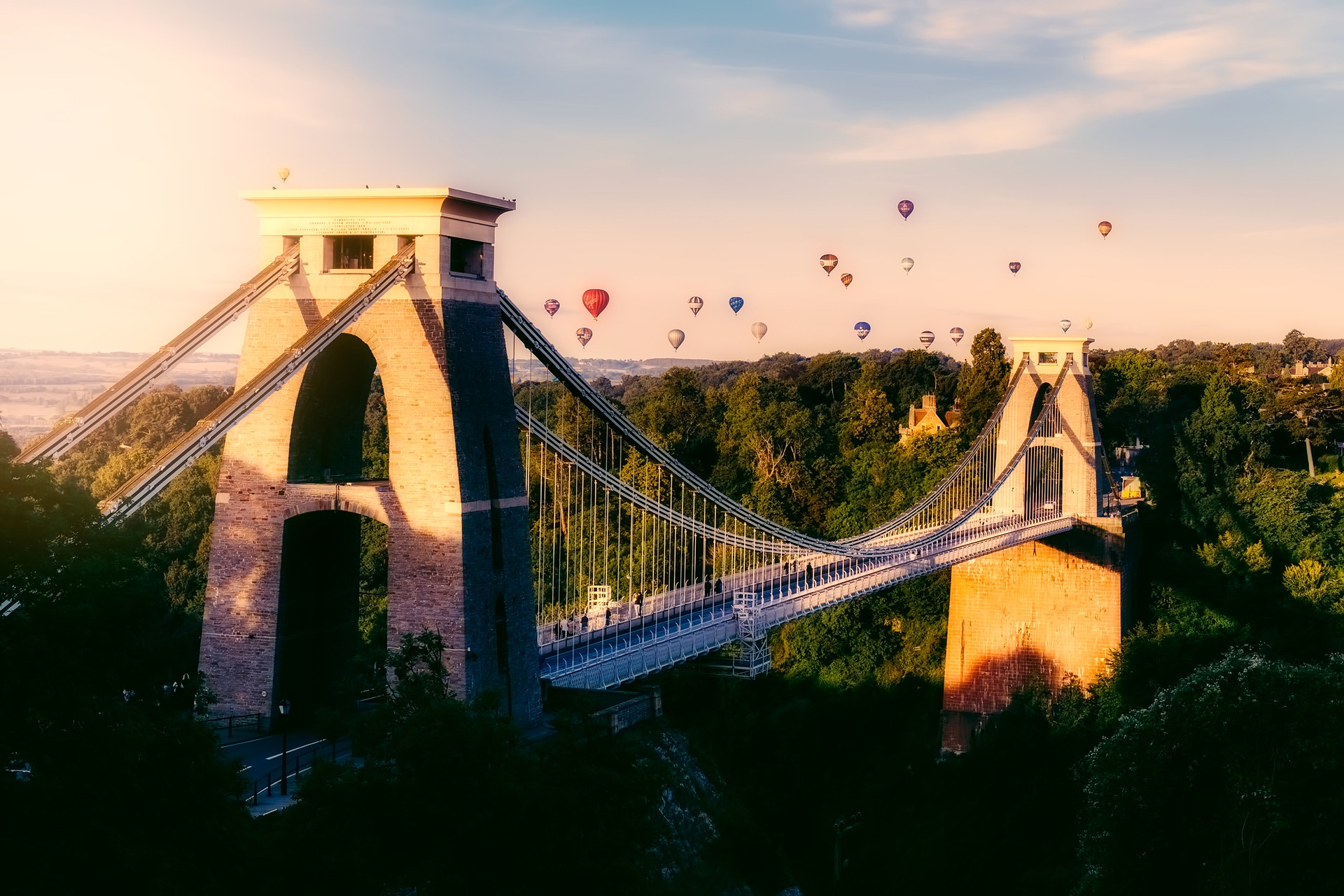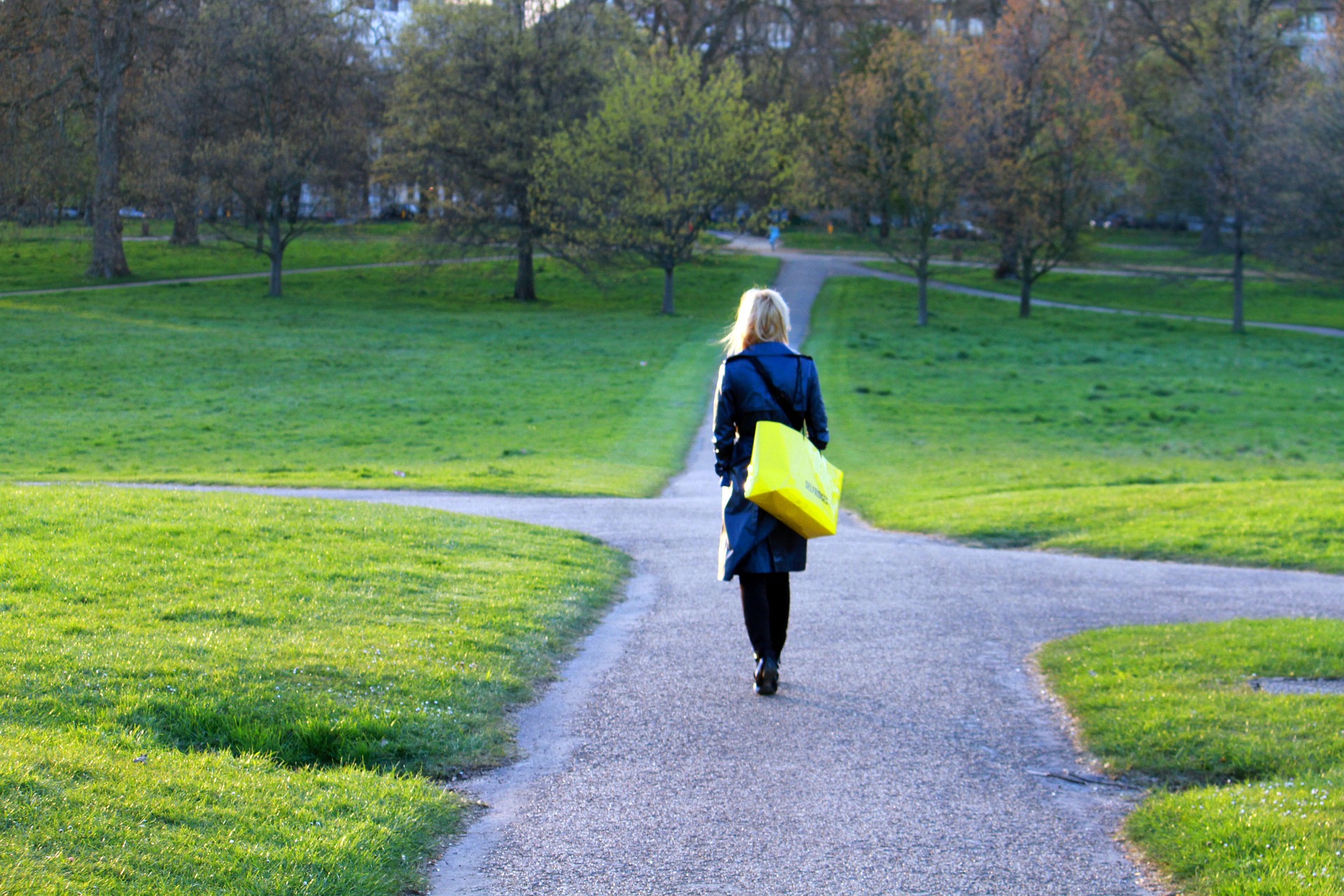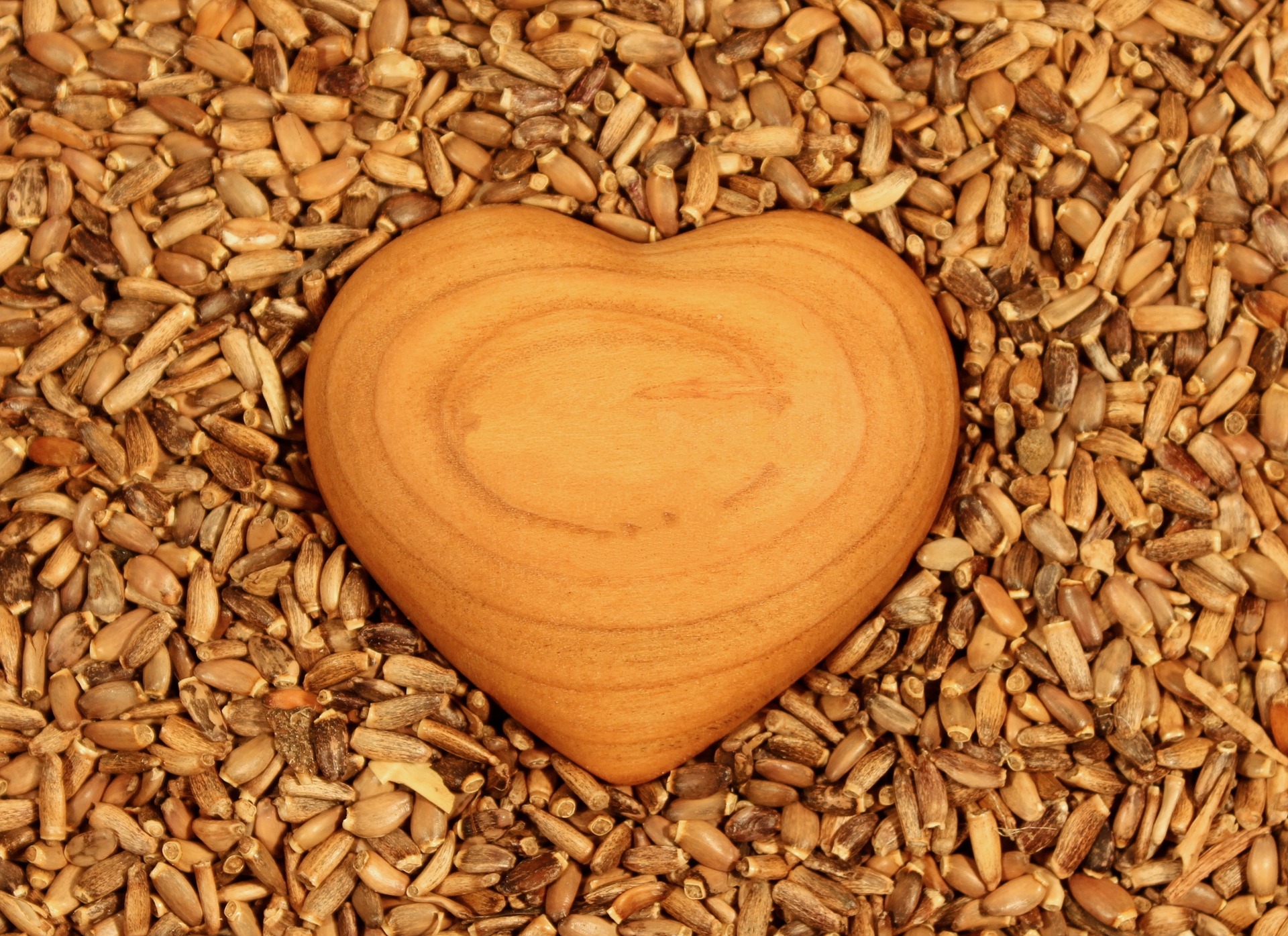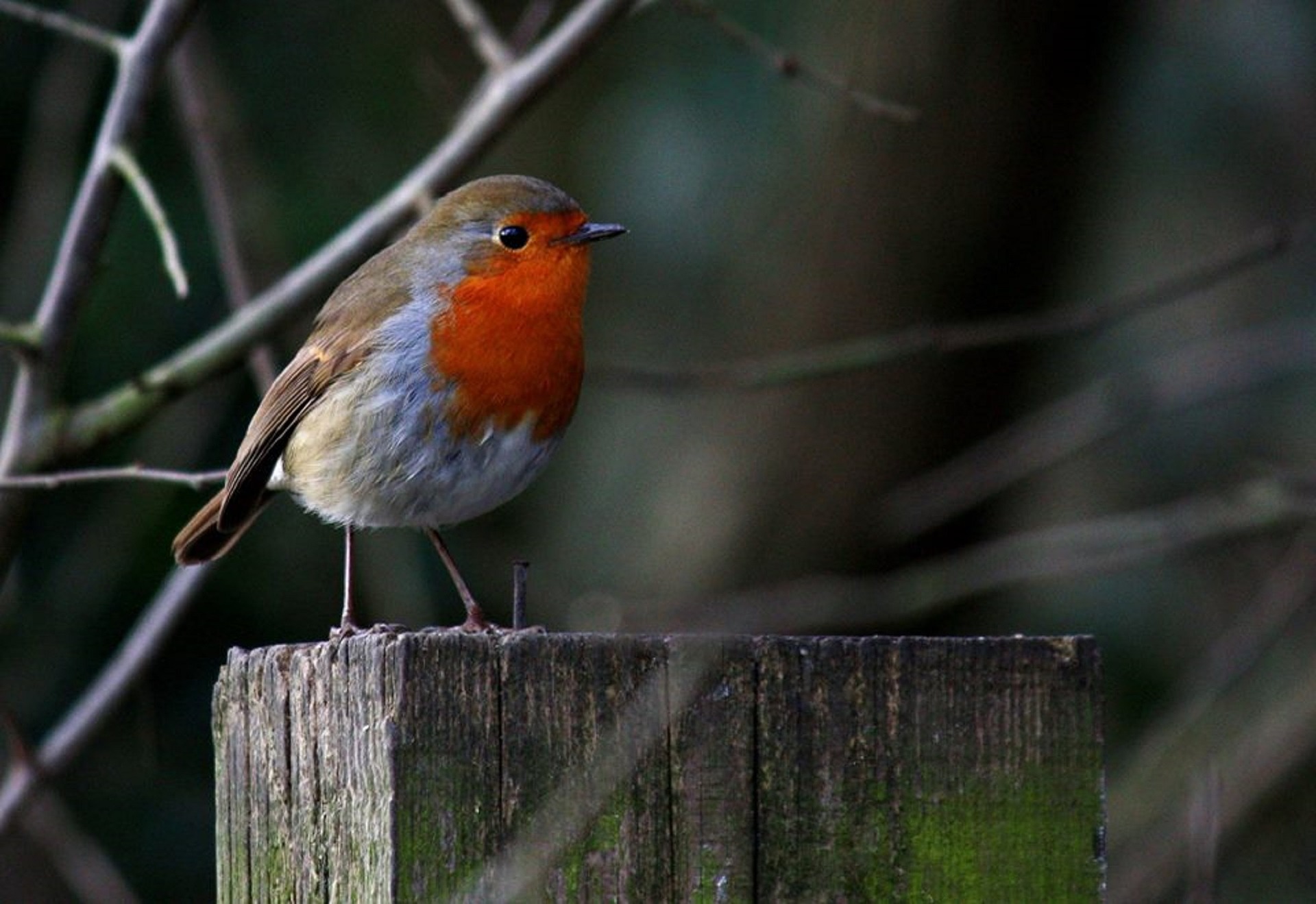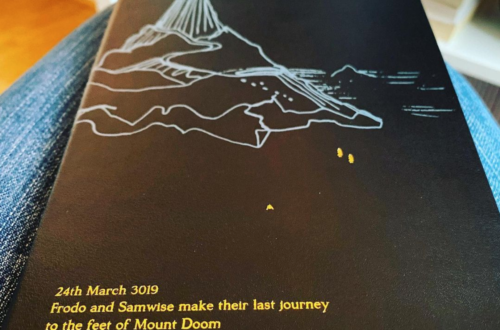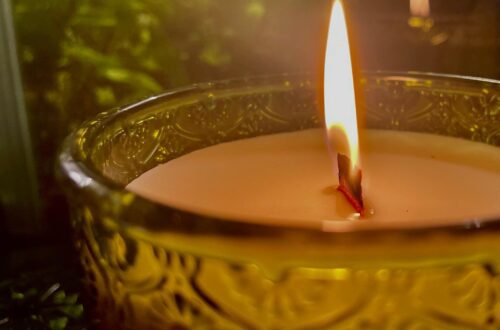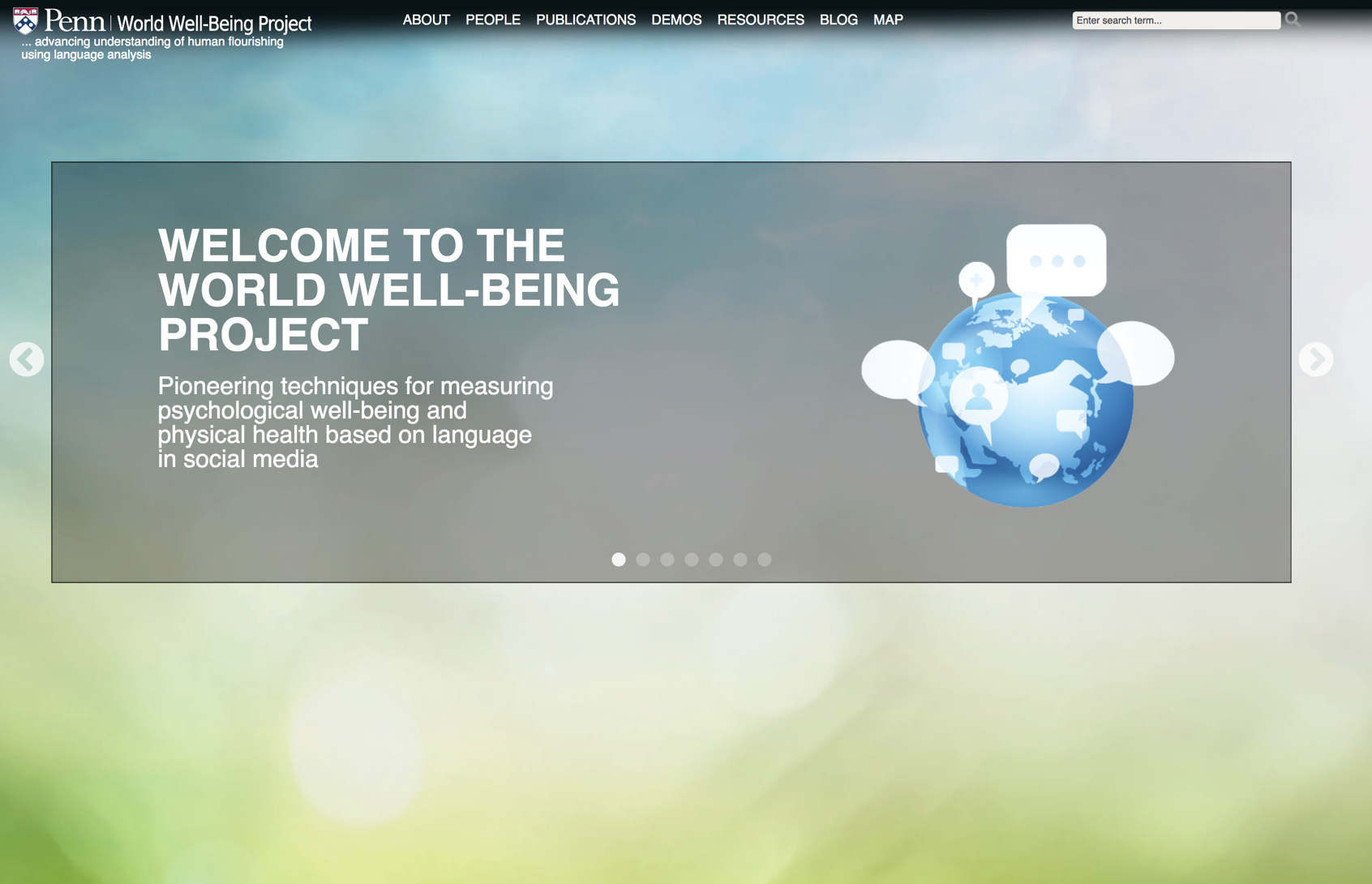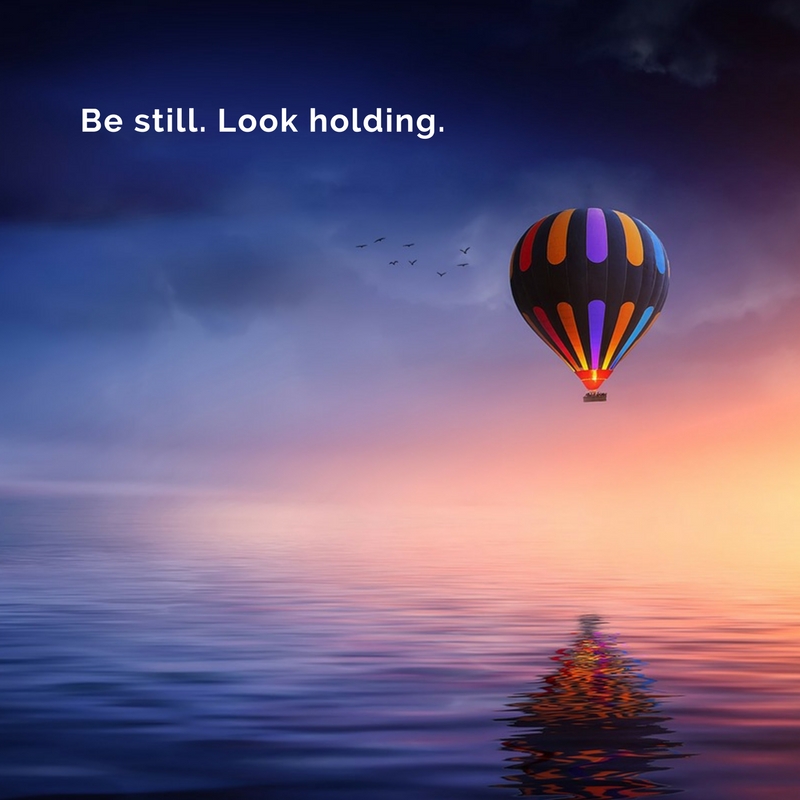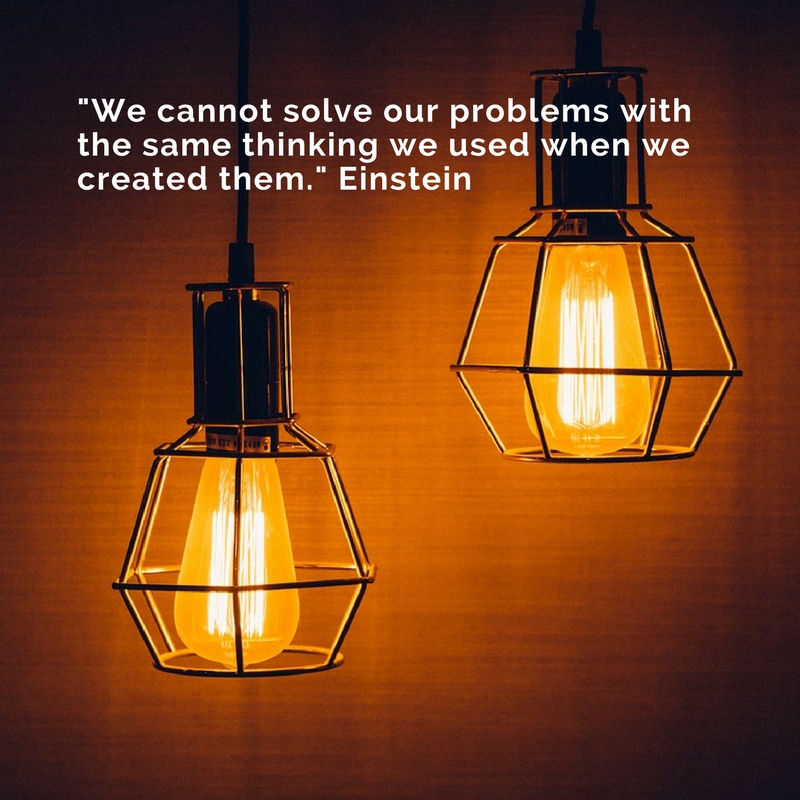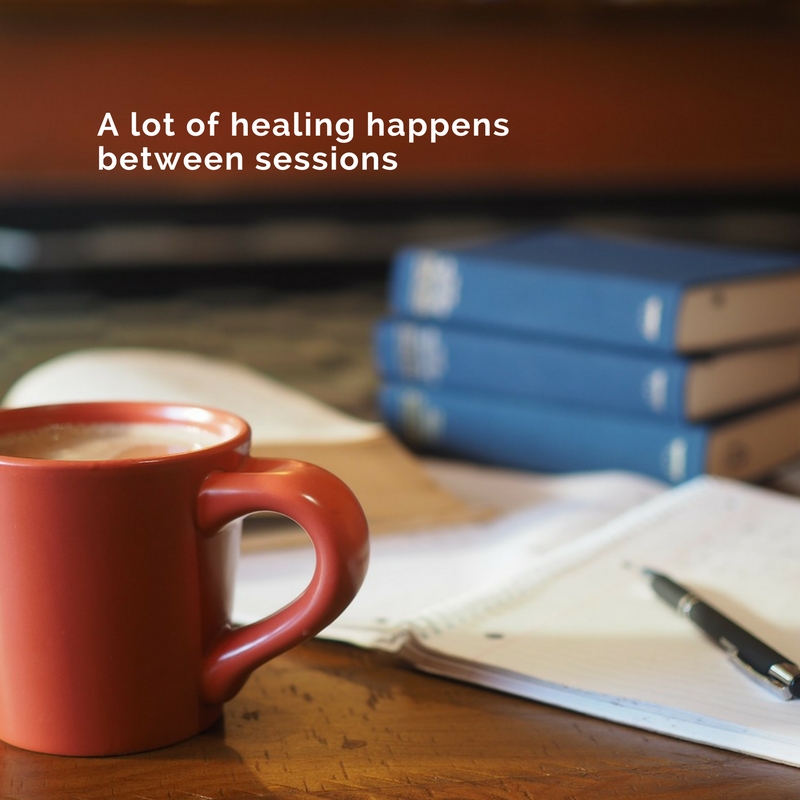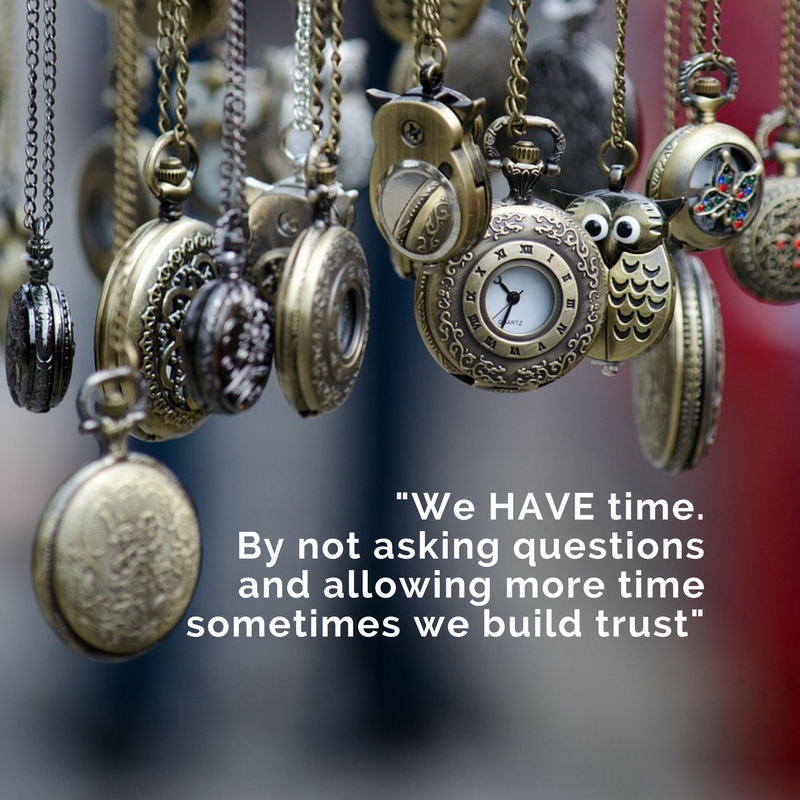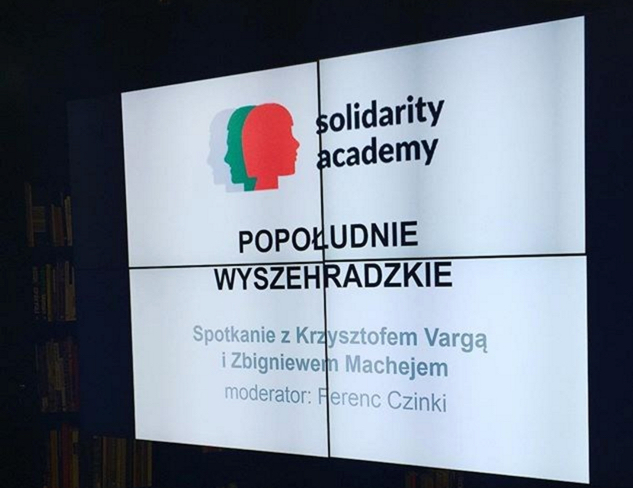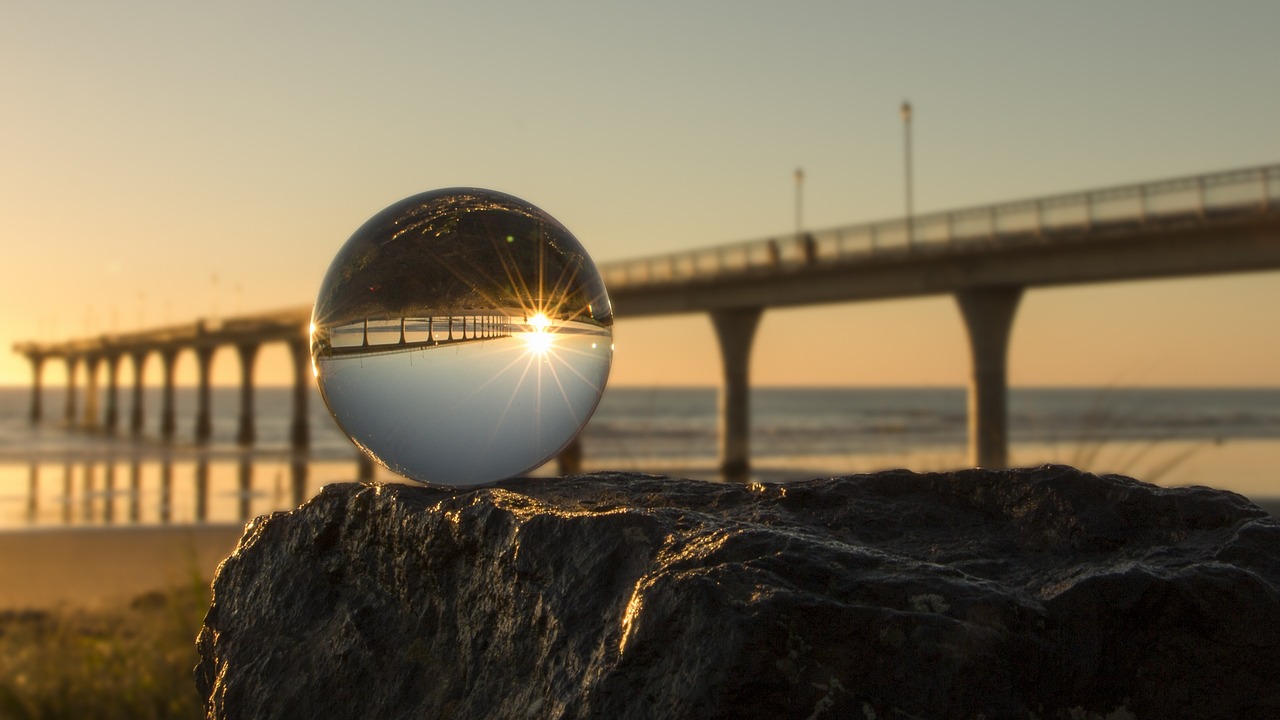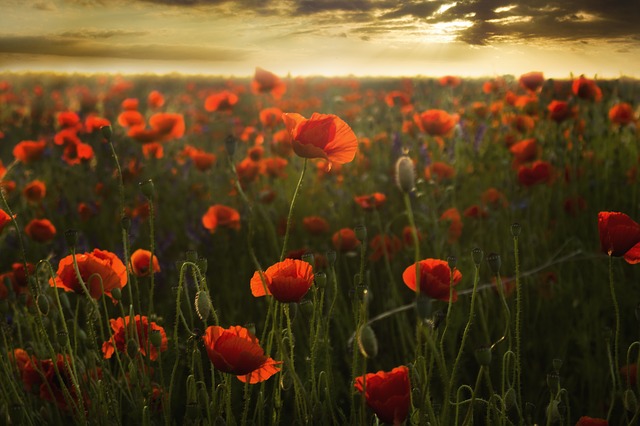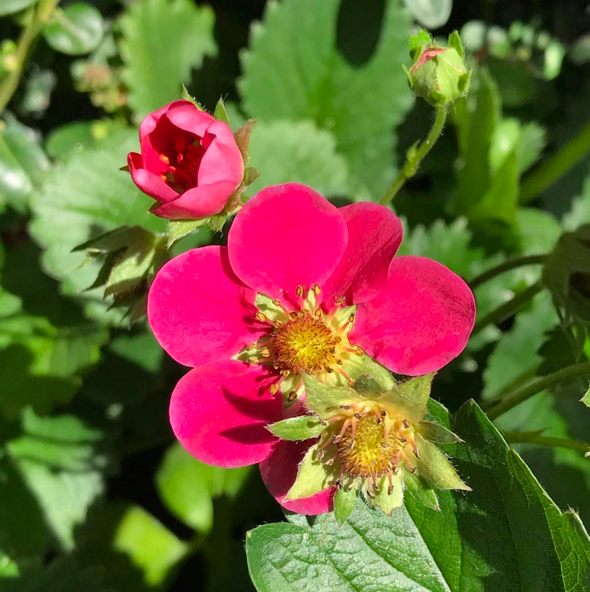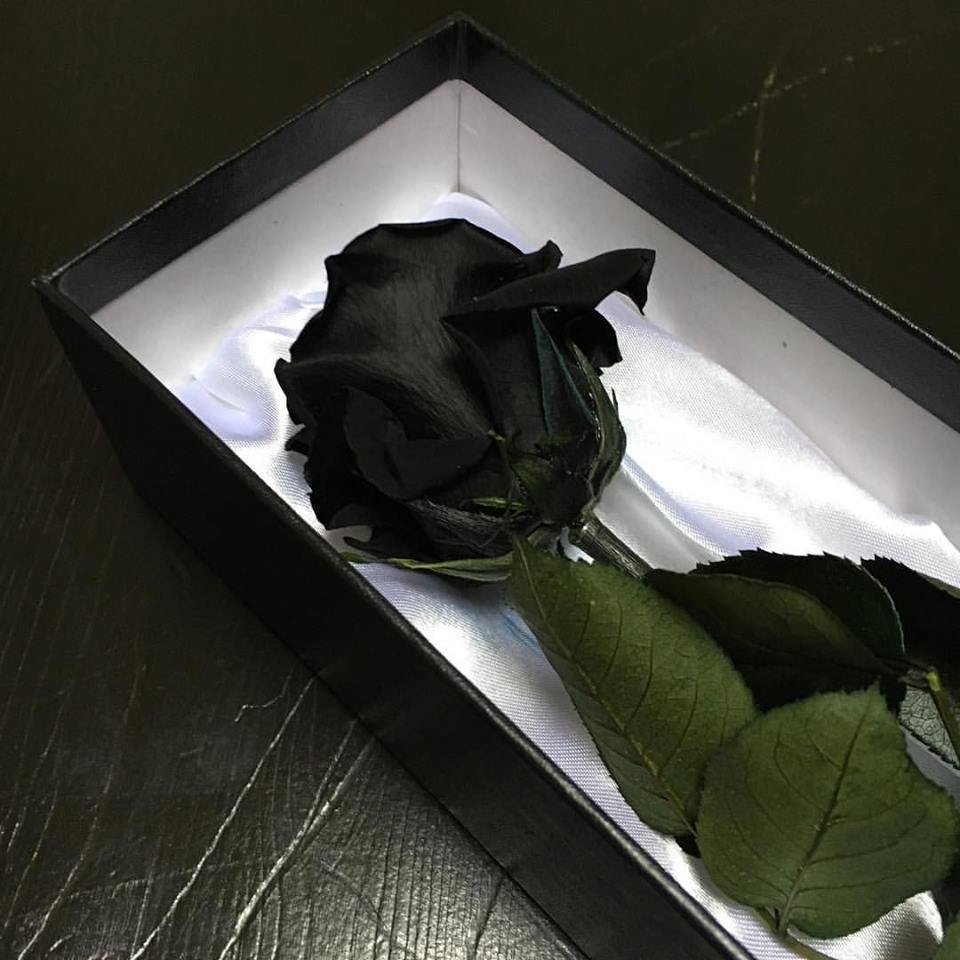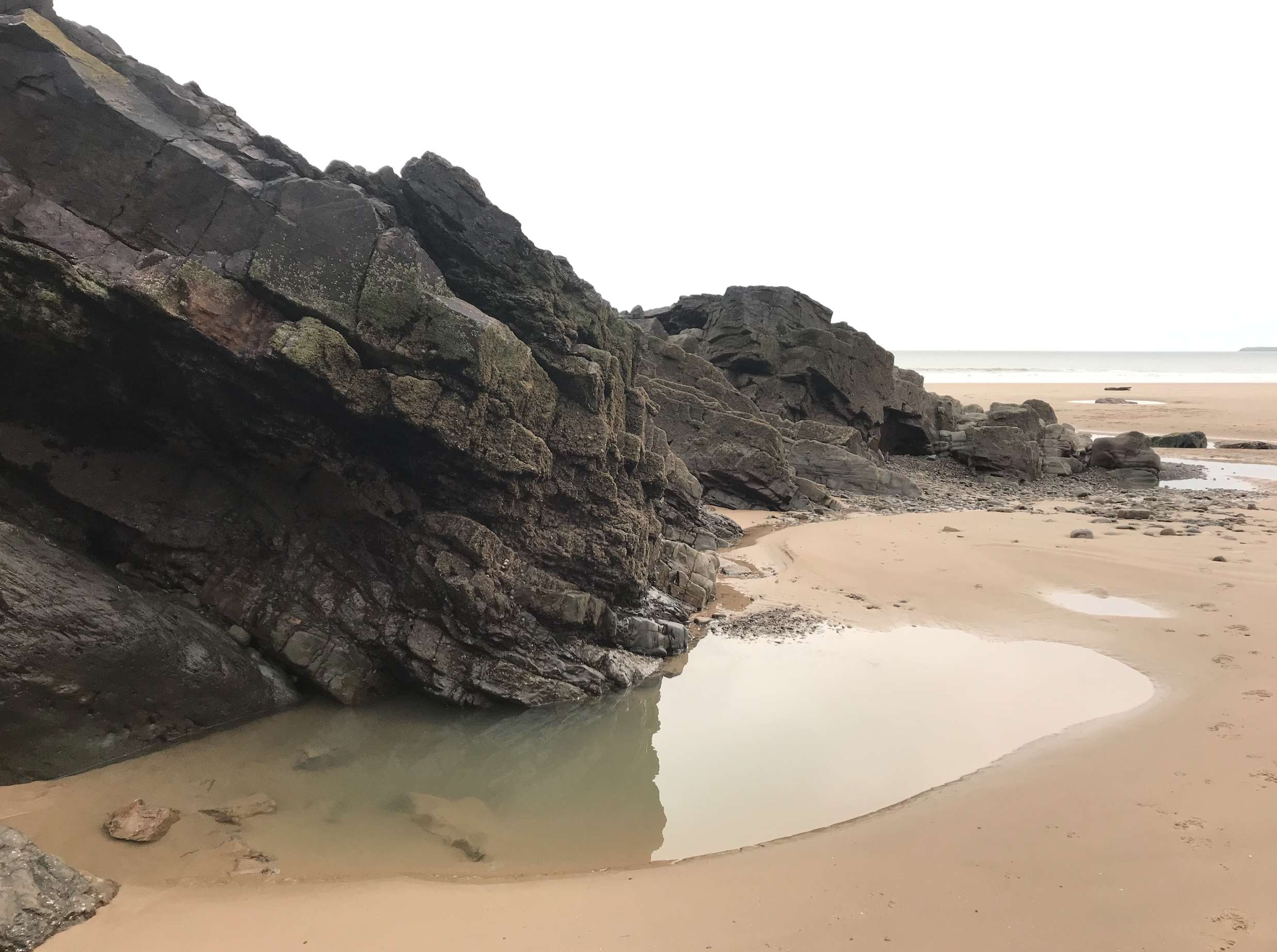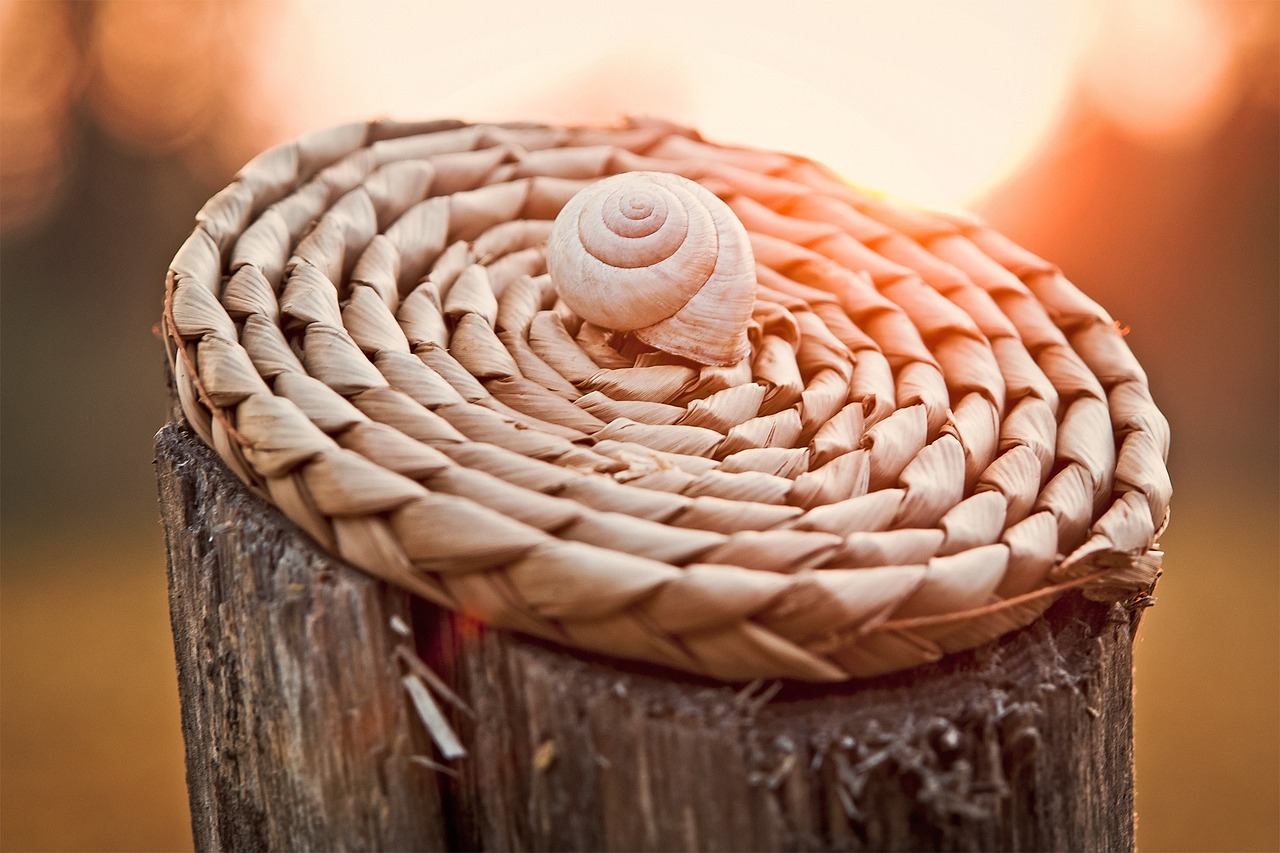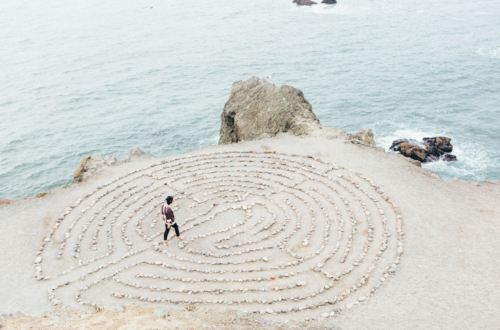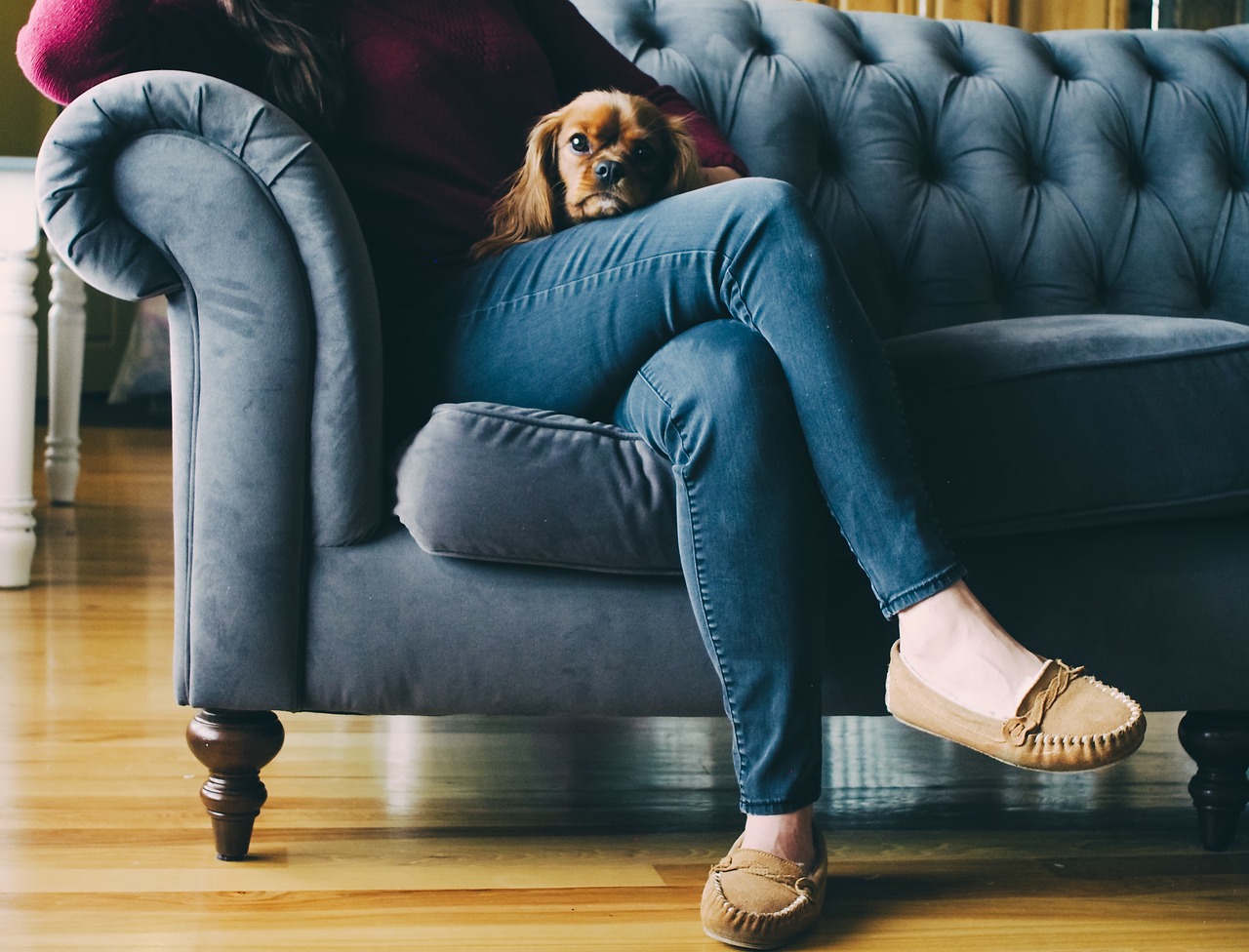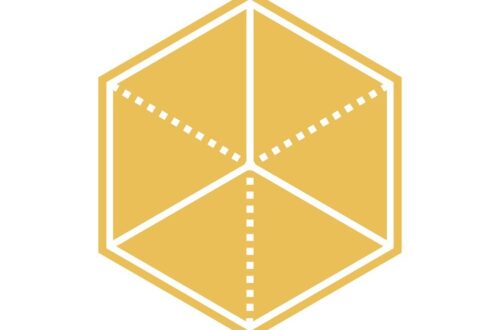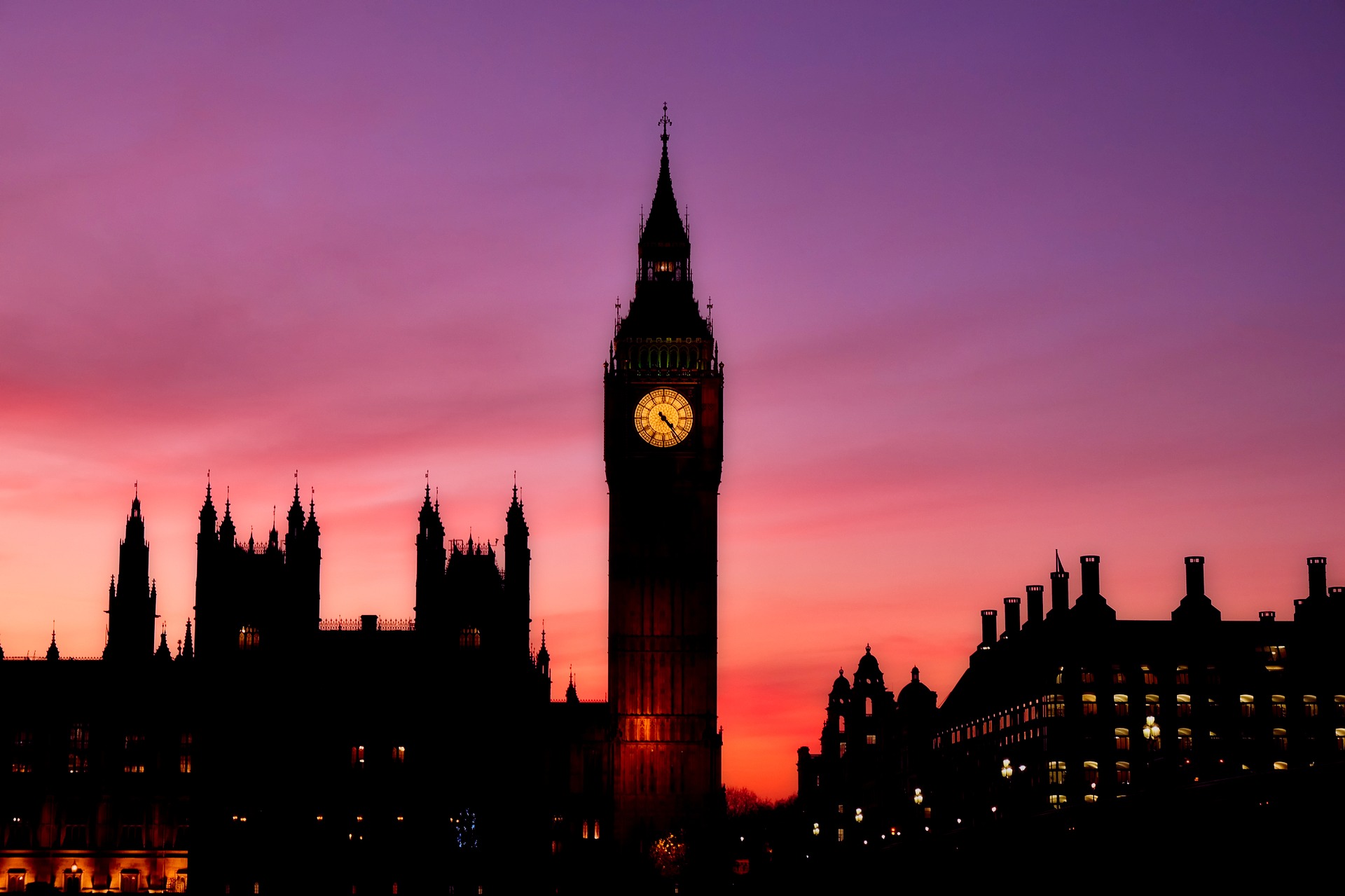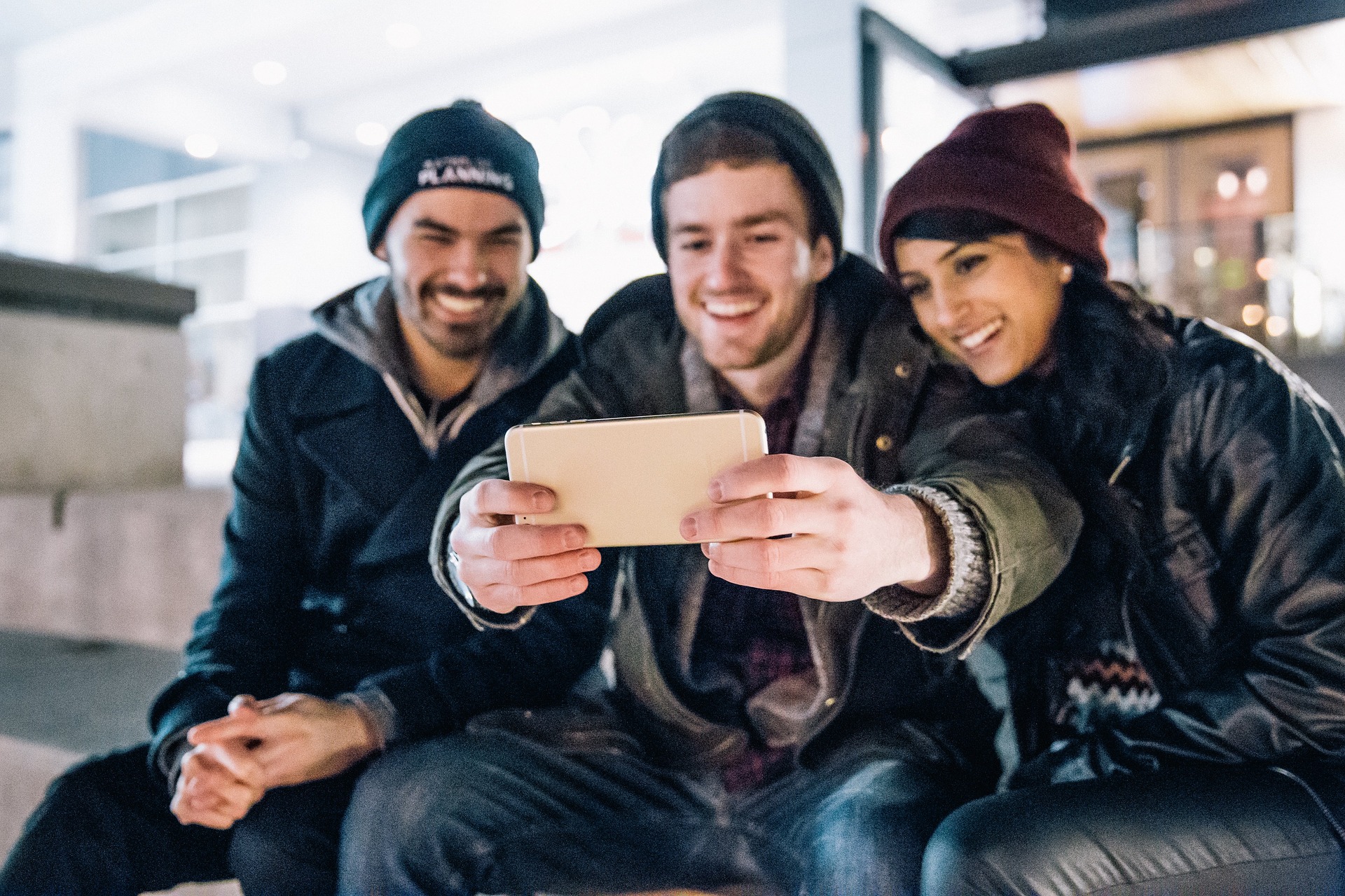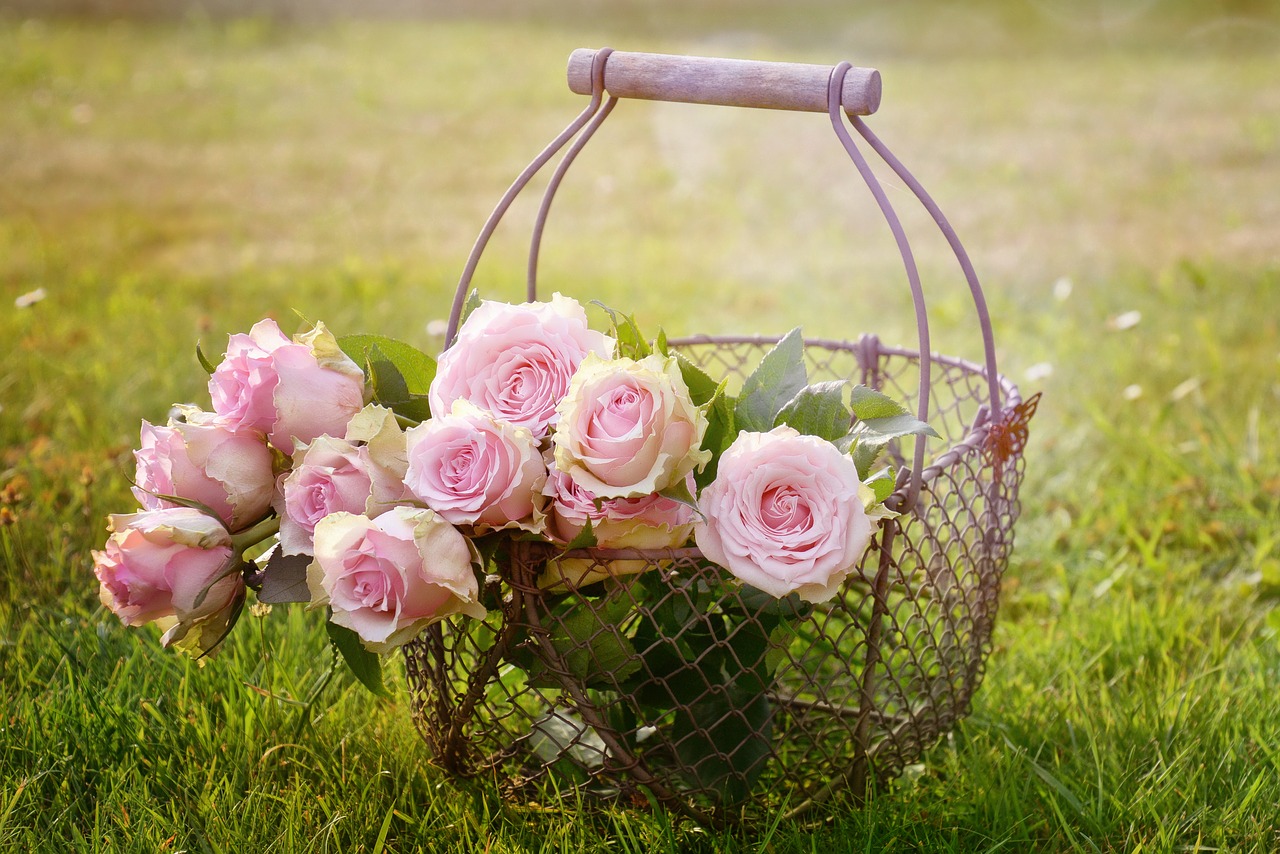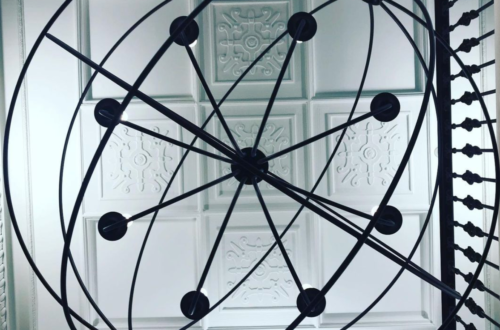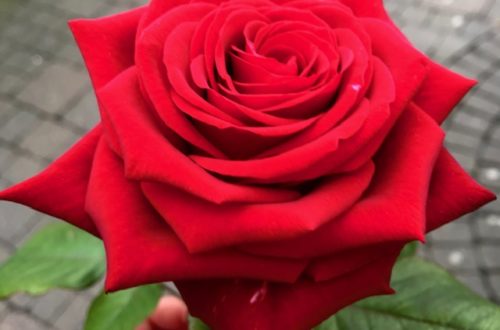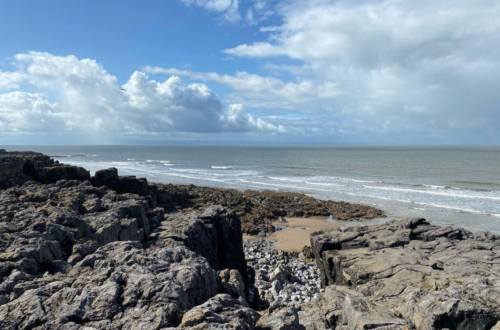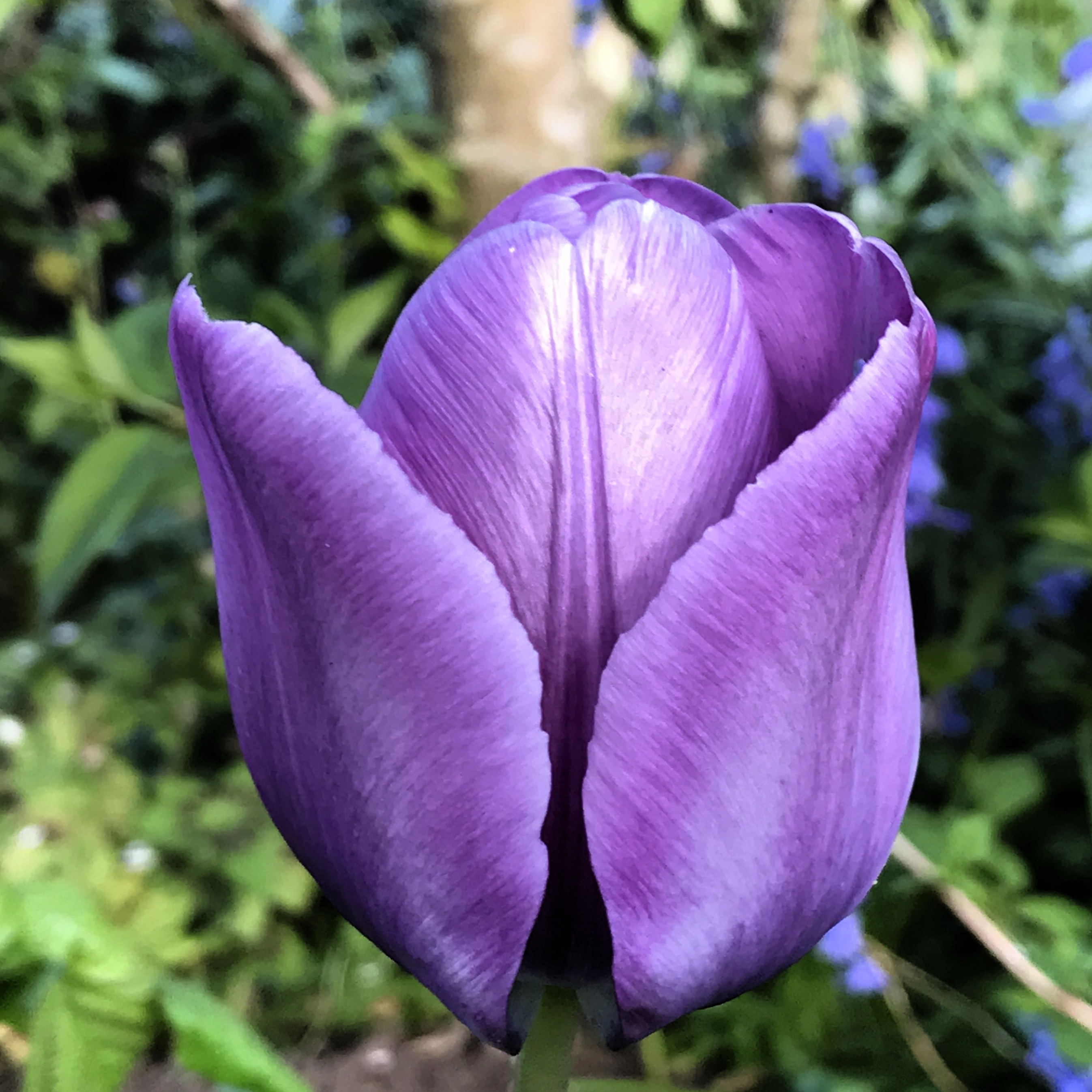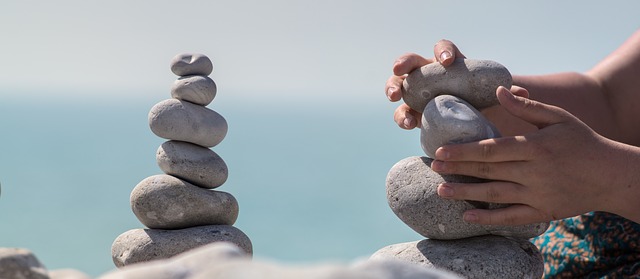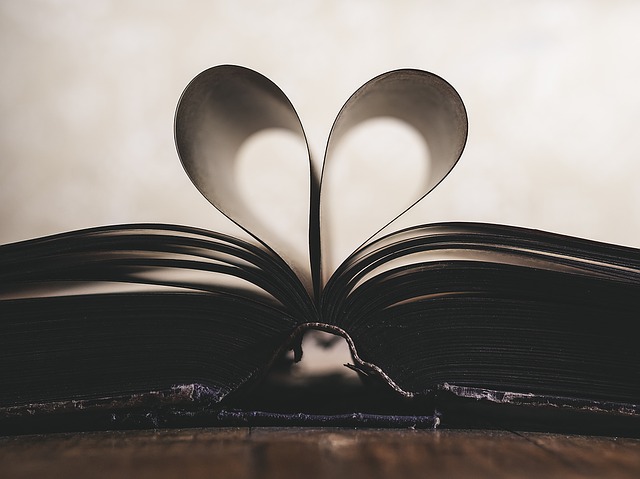-
Bristol
After few days in Bristol, I feel like I really want to move there now. People are very direct and friendly – lean into each conversation, no matter how mundane. I really miss that type of openness and inclusiveness in our little town. I am also noticing that after just a few days surrounded by street art, music, varied architecture and a great mixture of people I start to plot new creative project. We have decided to move to Bristol within the next 12 months and I quietly hope it will happen sooner than later so that I can continue studies but also live a happier life. It’s not just something I wish for myself and my family but I think it’s important for my self-care as a therapist. Choosing the place where we thrive mentally and socially seems obvious to me now.
-
On death and bereavement
It’s those simple situations that show me signs of next steps. I have already decided to apply and, if possible, to participate in the bereavement support course in Oxford this autumn but today, in the allotment, I found a dead bird and started thinking about death a lot. Since I was a little girl I was pretty much at peace with the idea of death but not too happy about the loss it evokes. I was raised in a Catholic family and at the end of my basic education, before joining the university, I have left the church and became an agnostic. I was not happy with the politics of the church. I think the last drop was finding out that the Catholic church leaders decided to rename the place souls go to after death from refrigerum (a cold place, where souls would wait for Jesus to return) to purgatorium (a place where souls would go to to be cleaned of sins). The consequences of such little change on believers are enormous and not very good: they bring guilt, fear, and terror into the picture. Which is not how I imagined death and the beyond. I faced the death of various animals because I grew up in a small village, very close to nature. My cat lost all her kittens just when they were few weeks old due to a cruel infection, but since then I did not see death as cruel, really, just as part of life. A fact. A constant. And I actually found it comforting. Later on, in high-school, my attitude has changed a bit. I was raging against it due to the very idea of art – the notion that a piece of art will outlive me simply outraged me! I started writing (very bad and not so bad poetry). I had it published at the university and moved on to subcultures and fascination with Gothic, with Beksinski and E. A. Poe. I did think about death a lot and thanks to my friends from Asian countries I started viewing my life and death spectrum in a more balanced way again – zen and other Buddhist theories grew closer and closer to my heart. I had a serious accident and surviving it threw me off guard a bit but zen temple in Budapest help to get it back on the right track again. Giving life to a small baby was natural, it did not feel like a miracle – it was part of the biological cycle of life. A lot about motherhood was obvious and reinforced my pragmatic approach to death too.
Today I would like to think I am at peace with death again, but to be honest, apart from a few animals or news from people who are not very close to me, death still present a bit of a distant concept. I would like to study it more and learn from the specialists. The Cruse bereavement support charity is the second oldest counselling charity in the UK with over 50 years of experience in both supporting clients but also training up their volunteers so I hope I will have the opportunity to learn there but also support their work. I decided to look into books on bereavement this summer to keep my studies going at least this way.
-
Canva notes from my first year
Tonight I am finishing the first year of counselling studies. It has been a very enlightening journey which answered my initial question from last September: do I really want to become a therapist? Yes, today I know I do. I also know just how much more I need to learn to complete my training and how exciting this journey is going to be. Everything I have done so far makes sense today. Every positive and negative experience in my life contributes to my current understanding of life and today I am confident that it is enough to get me started in the therapy world. I also have a few ideas as to what I should do next. I will certainly consider bereavement counselling course in Oxford, maybe also few psychology courses at the Oxford University. I will continue with my positive psychology studies too. As for the counselling diploma, I am not sure, but I will probably aim to complete it in Bristol.
This weekend I have completed my Canva notes and ordered my first pack of 100 cards from Moo. I cannot wait to see it. Below are my top four notes of the course.




I cannot wait to learn more but I do intend to take the summer off active studying to recover after a long period of stress and few difficult themes in my life. Things are getting much better but my body and mind do need rest. My plan for this summer is to not to travel, but sit in the garden and soak in as much sunshine as possible, enjoy the allotment and walks with my dog. I plan to rest.
-
Asha’s story – final summary
It’s been over a month since Asha left the UK. All of our friends are asking about the impact of her visit on us and on her so here it is in few points.
- Great adventure – it was really fun to have Asha around and show her all the people and places important to us. We traveled more in that month than in the entire year, I think and met up with most of our friends which is always a nice feeling. It feels as if it was us who was on holidays really. We did new things. Ate new meals (a lot of new Indian food, for example) and prepared new meals too.
- Connections – We have developed stronger connections with similarly minded people. When you live surrounded by friends and know a lot of people in a small town, connections become part of a routine and daily reality. But when a visitor like Asha “disrupts” this routine with unique specific demands, connections with similarly people become suddenly intensified. I think Asha brought up the best of all of us and it was a lovely month to all of us.
- Hope – the meaning of her name, actually. I think in the current political climate we all needed Asha with her courage to conquer the world. When I watched her taking deep breaths at the seaside on her first day on a beach ever, I saw a young woman full of hope, dreams, courage and I thought to myself: we all have it in us – despite all the stupid politics, we will be courageous, happy, foolishly heading towards our dreams and one day we will also discover new horizons, just like her. Or maybe we are doing it already, every single day…
- Redefining reality – small, simple things like air conditioning in the car or ability to choose food for dinner were so new to Asha that we had to redefine our reality a bit. We take so much for granted! We discovered the little pleasures of life again and I am sure those little reminders will be here to stay. We are more grounded in our home, garden, town, and country now. More here and now.
- Treasuring the universal – people worried about Asha, we also worried if we are doing enough to make her stay here effective for her studies but at the end of the day we danced, joked, ate, traveled, had fun together. Despite all the differences and a huge reality shock Asha was for that month part of our family and so on the last morning, at the airport, she ran back from the gate and gave her a hug through happy tears.
We will miss her terribly but I hope that in this connected world we can stay in touch! I also hope that one day we will visit her in her village and get to see her reality to.
-
The Shire
 “Do you remember the Shire, Mr. Frodo? It’ll be spring soon. And the orchards will be in blossom. And the birds will be nesting in the hazel thicket. And they’ll be sowing the summer barley in the lower fields… and eating the first of the strawberries with cream. Do you remember the taste of strawberries?”
“Do you remember the Shire, Mr. Frodo? It’ll be spring soon. And the orchards will be in blossom. And the birds will be nesting in the hazel thicket. And they’ll be sowing the summer barley in the lower fields… and eating the first of the strawberries with cream. Do you remember the taste of strawberries?”
― Sam Gamgee The Return of the King -
The unresolved relationships
When I was at the university in Budapest, I met a professional dancer from Cuba once, who told me about a concept of closing circles in his family and culture: we live in a world of constant movement and so when we build a relationship we like to start it in motion and move on a circular line towards a resolution; once it’s done we do another circle and so on. When we fall out, argue or abandon each other (we talked about love and life back then) we tend to leave some of those circles unresolved, open. And it hurts us forever. So it’s really good to close all the circles, loops, spirals and other shapes we might be creating with other people. It’s good to have a closure.
I think about it a lot these days in the context of my future work in therapy world. A practicing therapist needs to take care of herself and so all the private relationships preferably should be resolved. In the spirit of that, I am practicing “closing circles” this year. Just recently I have committed a faux pas of talking “business” in a local Waitrose (for the uninitiated, in the UK it’s a posh shop where conversations must only be casual, otherwise one is completely breaking the rules of engagement) and realised quickly that I made a major cultural mistake, but I did not expect to be involved in a very heated argument which resulted in the woman turning around in anger and walking away, later on as a follow up calling me rude and “worrying about me”. I was really upset and shocked because it was her who needed help initially: she asked a nonprofit cause I am working on for money to support her cause and I only wanted to confirm next steps of the process. But I used this emotive situation for practice for my counseling studies. In the past, I would stand my ground, argue the points and simply stop talking to a person as relationships so emotionally complex and twisted are not something I seek in my personal network. But this time I decided to close the circle, accept both points of view and decide that next circle with this person will have to be of a different size and with different boundaries. Why? Because I am now responsible not just for myself, but also for my fellow students who spend all their energy on practicing therapy sessions with me and I need to ensure that my daily life does not affect my studies or work. My mental health needs to remain as unaffected by the fluctuations of daily life as possible, so I also need to be a bit less extreme in my criticism towards others – maybe not less, but different. Even though this particular situation really flooded me with intense feelings, I was able to employ all the self-care mechanisms I had at hand: manage my feelings (calm down, relax), manage my actions (discuss all options with a few good friends, manage email exchange with person involved), and do the follow up self-care activities (go for a walk, visit the allotment, enjoy time with family). I am so lucky that I surround myself with emotionally stable and solid friends who can support me on those very rare occasions when things get out of hand. I was very different when I was younger – I would take it all in and steam it all out and possibly be a bit more creative in the process too. But in the last few years, I have spent more time working on my resilience skills and clear boundaries. On always closing circles.
-
Thank you for all your support!
We would like to say a huge thank you to everyone who supported our distribution of the Wantage Summer Festival Programmes – you are great! We hope you will enjoy your summer in Wantage!
-
On Brexit again
Two days after Asha’s departure, as if it was a reward gift from gods for everything we’ve done for her, I have received a letter from the Home Office that my residency application was granted and actually backdated. I can apply to be a British citizen soon. I can stop worrying and start planning. I won’t bother you with all the details of why staying is the option for my family because we had various opportunities outside of UK too, all of them good, but staying became the most effective for now – that’s all you need to know. What is important though, I am planning to use this Brexit experience for my future work as it opened up a completely different level of anxieties in me and tested my resilience skills to a completely new level. I really did not want to blog about my negative feelings of the last 18 months. And it had been more than a year, actually, because unlike my friends and family I was not at all shocked with the results of the referendum and I was worried pretty much since it was announced. Today, however, I would like to write up a list of important learnings from this period – for myself and for all the other EU citizens who are suffering at the moment and all the British citizens who wish to support them.
- Nothing is certain so we need to stand up for tolerance. During the last 18 months, I have noticed something really strange about people: those who are racist suddenly feel it justified and permitted to express their hate speech, whereas those who are tolerant do tolerate that and rather fear speaking up for foreigners. We all know this but on an individual level, it can be very extreme. A mother of my son’s friends (a woman who spend endless hours in my house) had the guts and lightheartedness to text me on the morning of the referendum results that my husband probably won’t find work after Brexit in the UK, knowing just how hurtful this could potentially be. (Actually, it was very revealing, and I suspected this sentiment so I am glad it came out to the open finally and I can one day show it to my son as a learning). On the other hand, another family friend did not text me that day, but a few days later mentioned on the way home that she wanted to say sorry, even though it was not her fault, just to cheer me up. What I took out of this experience is a strong commitment to tell racists to f**** off and reconsider their tone and on the other hand, a strong determination to support, actively reach out and hold those members of our community who are actually vulnerable.
- It’s good to know when to speak up and how. People live in a wide range of biases and arguing with the blindfolded does not always help. Also, sometimes we tend to have an urge to prove our point but in times of political crisis walking away might just be the best option. We, the more educated and informed of us, know very well that Brexit is going to hit us hard (it already has, economically) so is it really worth re-negotiating our relationships with every single person? I don’t think we have enough of mental capacity to do so in times when renegotiating (ie. re-establishing, reinforcing after a political event which aims to divide people) our friendships with the closed ones are a priority.
- We need to work on our resilience contingency in the good times. I am ever so happy about all the work I did in the last few years to build up my resilience. I did so to ensure that I can run my own business more effectively and provide emotional support to my family, but as it turns out I myself have benefited from it too. I know that we have a tendency to understand the need to resilience once our mental abilities are tested, but it is so much easier to focus on it in the good times when self-development is something we actually have time for. I will take this learning with me to my future studies and always try to prepare for the worst in advance – it’s astonishing how much simple mental habits and a bit of positive thinking can help when life seems almost helpless or at least challenging.
- We need strong networks, even if very small ones. This one is obvious, of course, but in the modern times, we tend to forget it. I read a study somewhere that almost 30% of people in the UK don’t have a single trusted friend and I just cannot imagine how hard their lives must be! Close friends are there for us when we need them and when we have those happy time to share too. Why? Because in those happy times they learn us and on a bad day are already a step ahead of us and know better what’s good for us. They hold us through hard times. Sometimes they save us too. It’s also worth remembering that some worst times last longer: depression, long-term illness, caring for an elderly person or grief – all those long periods of challenging reality can be so much easier if we have an escape in a friend who can just meet for a coffee or sit next to us. We are social creatures in the end.
- Noone should be left alone in their isolation. As a follow up to the previous learning I would also like to point out that we are here not just to secure ourselves a friend or two but also to look around and figure out who is missing and why? In my small town, I have met so many lonely people that my heart hurts! A man who passes our house every day sat alone in the pub and only during the literary festival I found out just how well educated and interesting his opinions are. I wish I had a beer with him in that pub on so many occasions. But I did not and now I worry because I myself did feel isolated for a long time and even if not early on, sooner or later, I was lifted out of that abandonment by a new friend. We should not have to be alone in the modern world and we should not have to face Brexits to flock to each other for support.
- We need to be radical about our environment. We need to actively seek places and community that make us thrive. In the last 18 months, many of my liberal friends decided to move out of my rather conservative town, some actually regretting waiting so long to do so. We have started planning our move too. The groups we live in, and its underlying culture, ultimately are not just our support networks, but if unsupportive, can also become additional factors for depression. I am not just talking about the targeted hate or ignorant comments but the actual lack of support, lack of interest, lack of care and kindness on a daily basis. So many of us don’t even realise the power of neighborhood and its impact on mental health. My street and surrounding house are really friendly, but at the core of its heart, this town is the coldest and most unwelcoming place I have ever lived in, and I have lived in a few at least. Even some people working at the Town Council agreed with me that it takes on average ten years to be allowed in (never really accepted) and possibly start making friends. It took me seven to find a good friend and I was involved in all the possible groups and causes, I really tried to join in and contribute. I thoroughly regret staying here for so long, and I am really sorry that such terrible political changes had to make me realise this. How do you know? It’s in the neighbor’s smile or condescending “hello”. It’s in the number of social invitations or the lack of thereof. And finally it’s in the care: the pro-active thinking of the members of the community about those who arrive, join in or maybe don’t seem to be visible, maybe feel alienated – and actually doing something about it.
- We need to realise the power of words, gestures, and silences. Every word is a message. Placement of a racist paper in the shop window. Condescending morning greeting. A flag in a coffee shop. A swastika in a window. Those simple signs of hatred that I have experienced in my town are nothing comparing to what some of us experience nowadays due to Brexit. I do not think we appreciate just how strong the written word and the unspoken hate can be – it’s in our tone, on our face and in our silence too. We really need to get a grip and learn to use the communication tools we have for positive impact instead. I take it as a learning and I hope others will too.
- Long-term, slow suffering is just as damaging as one-off trauma. I read recently that the impact of a lonely day of depression equals about 10-15 smoked cigarettes, really. I hope this is not right, but I am not surprised. I remember a series of moments when my heart was sinking. Hateful message from another mum. Daily Mail on a table of a client who asked me for endless free work. May’s Christmas wishes to all the families in the UK that made me cringe – obviously mine was not the one she would consider worthy. It all had a genuine negative impact on my physical and mental health. It’s terrifying to realise just how much self-care I had to practice to counter-balance this terrible period of my life – even though I actually had a lot of alternative options for the future of my family. I cannot even imagine how an EU citizen with no prospects might feel right now.
- Self-care is crucial in challenging times and there is no scope for self-criticism. When shit hits the fan I hug myself and say it out loud: It’s all going to be OK, I am OK. And it helps. And there is more. I walk the dog, I cuddle her. I take the gardening tools and venture out into the allotment for another project. I watch the baby birds play in the garden and practice gratefulness. I turn my face towards the sun. I shop for new fruits and prepare a new salad for boys. I watch a good movie or read a good book. I register for a new course. I take a long hot bath listening to punk, rock, jazz, any good music. I dance. Even though I know that the reality is not perfect, I am taking a very good care of the little girl inside of me. I do not scold her. I do not judge her for her mistakes. Not now. Now is the time for her to rest a bit. Before the next piece of bad news. Before the next ignorant neighbor opens her mouth. Before the skies open up again. I soak in the sun which fills me up with a lot of good energy because I need it now.
- We need to accept grief into our lives. And when all the clouds are gone and things start to become a bit better, we need to give ourselves time to simply feel sorry for ourselves. Our parents grew up in a world which told them to suck it up and toughen up but I do not think this is a good long-term practice. If our minds and bodies were exposed to a long-term tension or suffering, it’s perfectly fine to grief and takes time to recover. I have no idea how long it will take me to recover from the experiences of early years of Brexit, but I know it did hit me hard. I usually collapse a little bit after a trauma. Sometimes I catch a cold or simply need to catch up on sleep. I eat a lot and don’t worry about my kilograms. I know I can lose them later. I eat chocolate and enjoy life but carefully, slowly building up my trust and positive outlook. It does not happen from one day to another, it’s a process and some of it is negative. And it’s OK. When times are bad sometimes we simply have no capacity to hurt more. Grieving is the process that helps us process all those leftovers, I think.
This is my little Brexit decalog. It has shaped me into a more empathetic person and I understand people suffering from trauma and crisis so much better now. I hope to work with refugees and other victims of life challenges one day but for now, I am making a note of those important points, not to forget them.
If you have been through similar times and have good learnings, please share. I would love to learn more about this.
-
Paths we take

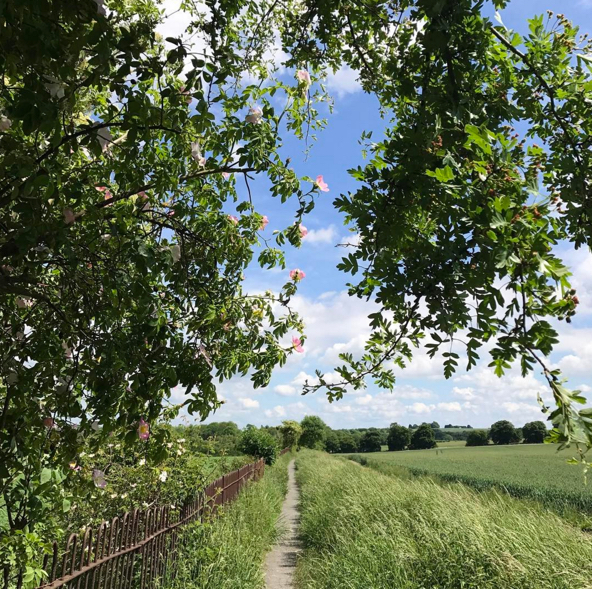
“No one saves us but ourselves. No one can and no one may. We ourselves must walk the path.”
― Gautama Buddha, Sayings Of Buddha -
Asha’s story – week 4
Last week! We made a promise to ourselves that we will not cry, we will smile until the last moment together and leave the tears for later;) Last week was emotional for all of us but we had to push hard through it to make the most of Asha’s improving English skills and growing confidence. Tuesday was difficult for Asha – as expected, the three-quarters through her stay the lodging for home and family kicked in. Asha bravely requested a call with her parents and so there were tears on both sides of the line. It’s quite amazing how this short call and chat to parents and friends helped! Asha bounced back quickly and focussed on studies and last week of experiences again (well, with a little help of Facebook friends, Poppy and bubbles! ;))

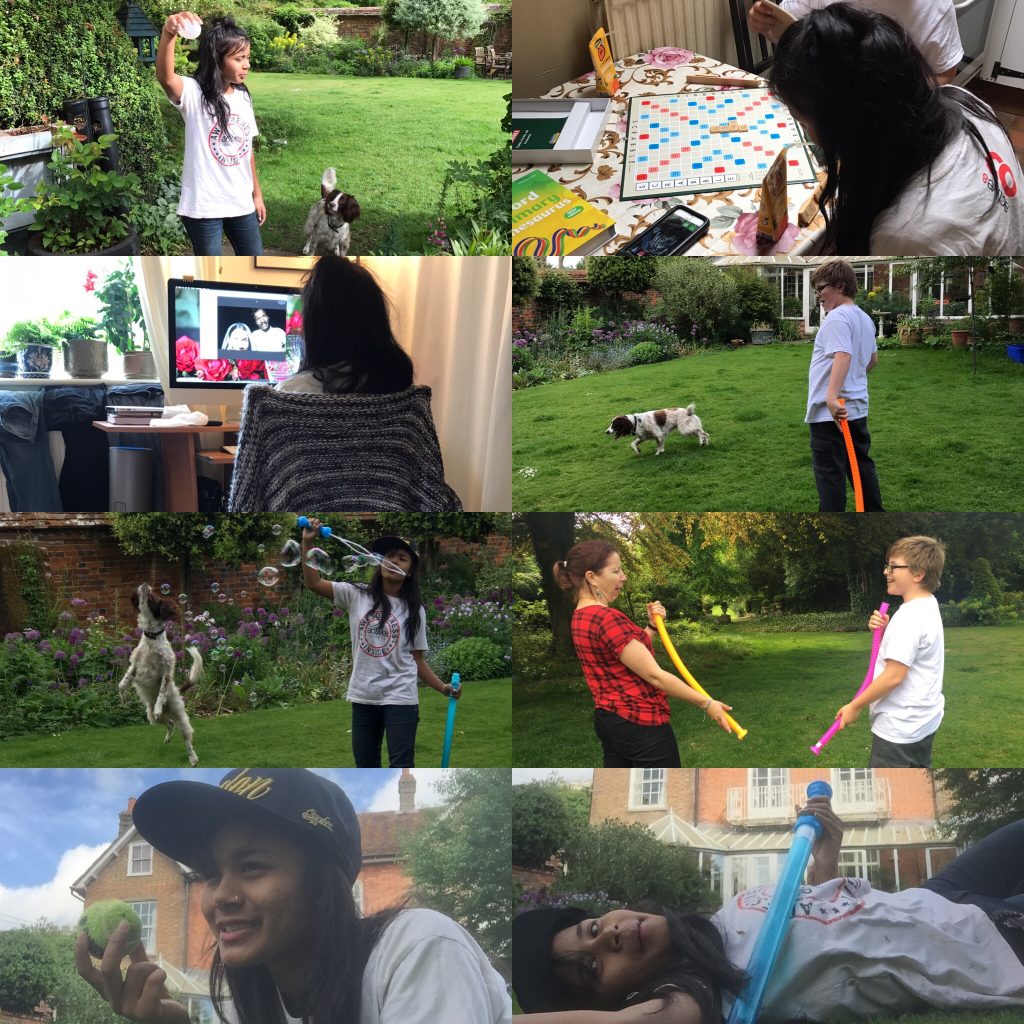
The very same day as the call with her parents, we took Asha to our local youth club for the Tuesday Sweatbox session. This place welcomes over 100 young people each Friday but Tuesdays are quiet and very friendly, so we thought it would be a good way to cheer her up. Asha really enjoyed the place and company – so much so that she responded to my teasing and got up on the stage to perform a full song in Hindi. It was a real little moment of her shining which showcased her energy, talent and determination. Boys and girls from Sweatbox really enjoyed her performance and encouraged her to continue singing in the future.

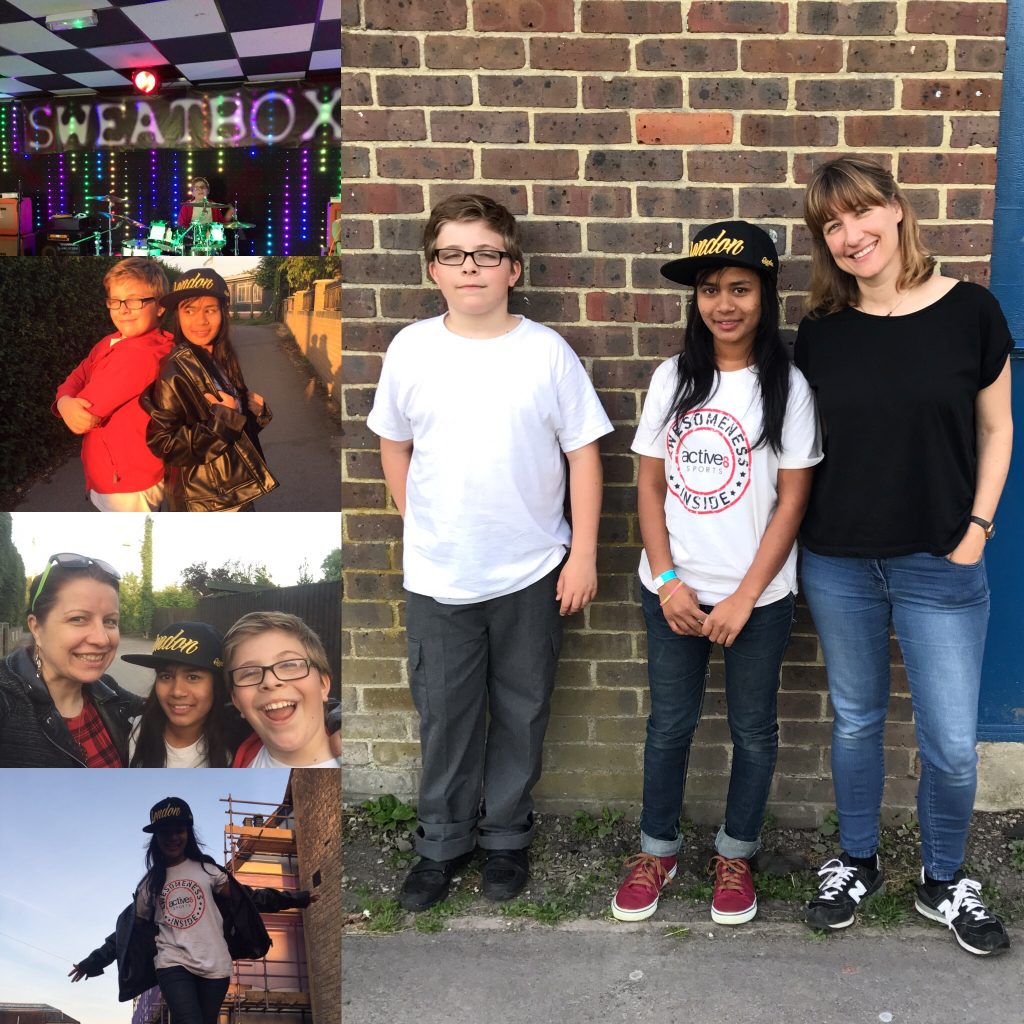
On Wednesday I had a meeting to plan Wantage Summer Festival at our local Vale & Downland Museum so Asha had the opportunity to browse through it and learn about the local history on her own.

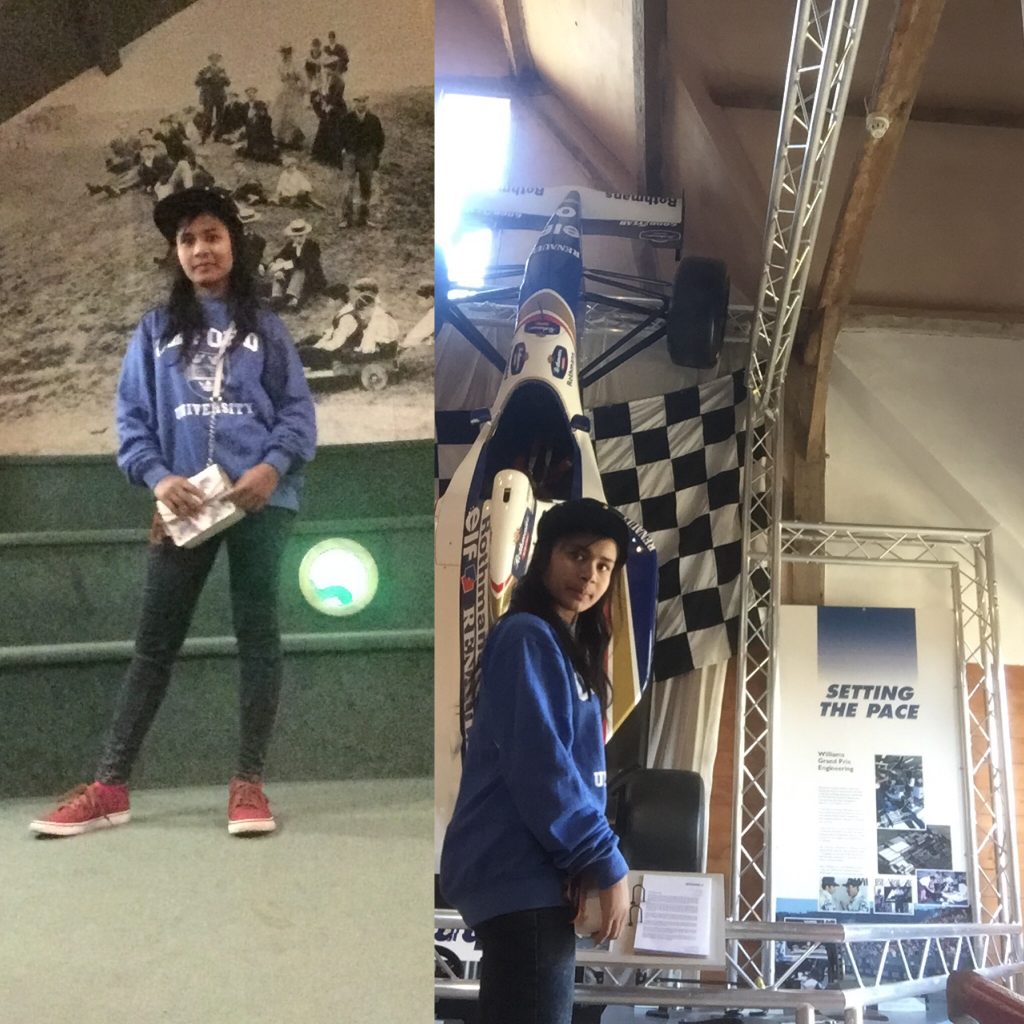
On Thursday Asha learned about Scotland and had a perfect opportunity to test her new knowledge later on – when we visited another friend from Dawid’s school and her friends. A huge thank you to Emma for organising this afternoon and for the wonderful Indian food!

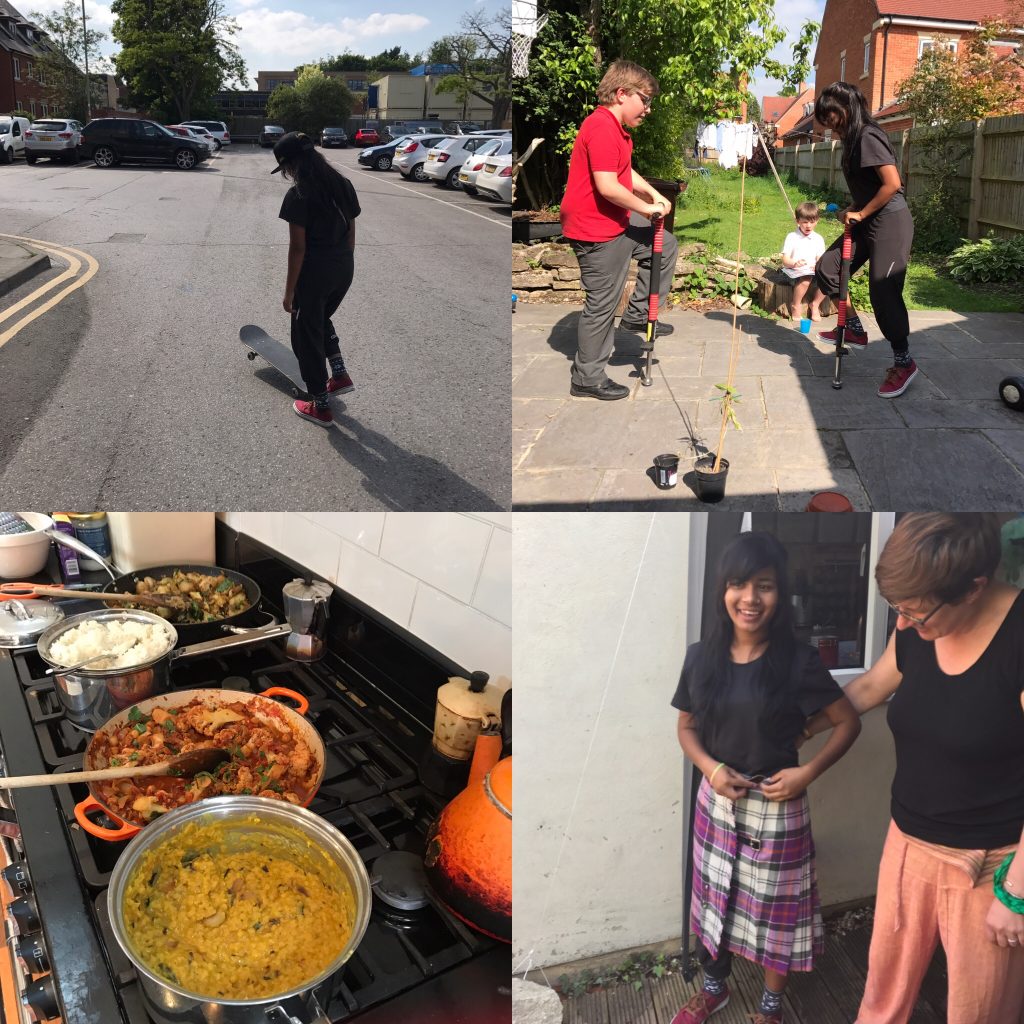
Friday night was a bit of a surprise trip to Oxford. My old friend from Germany, Kristina, visthe UKed UK and told us about our mutual friend, Sarah, who recently moved from Appleton Lock to Oxford Osney Lock. I took kids on the bus again, we walked along the river, talked to narrow boat owners, watched baby swans on the water and finally enjoyed sitting down in the sun at the lock and catching up with friends.

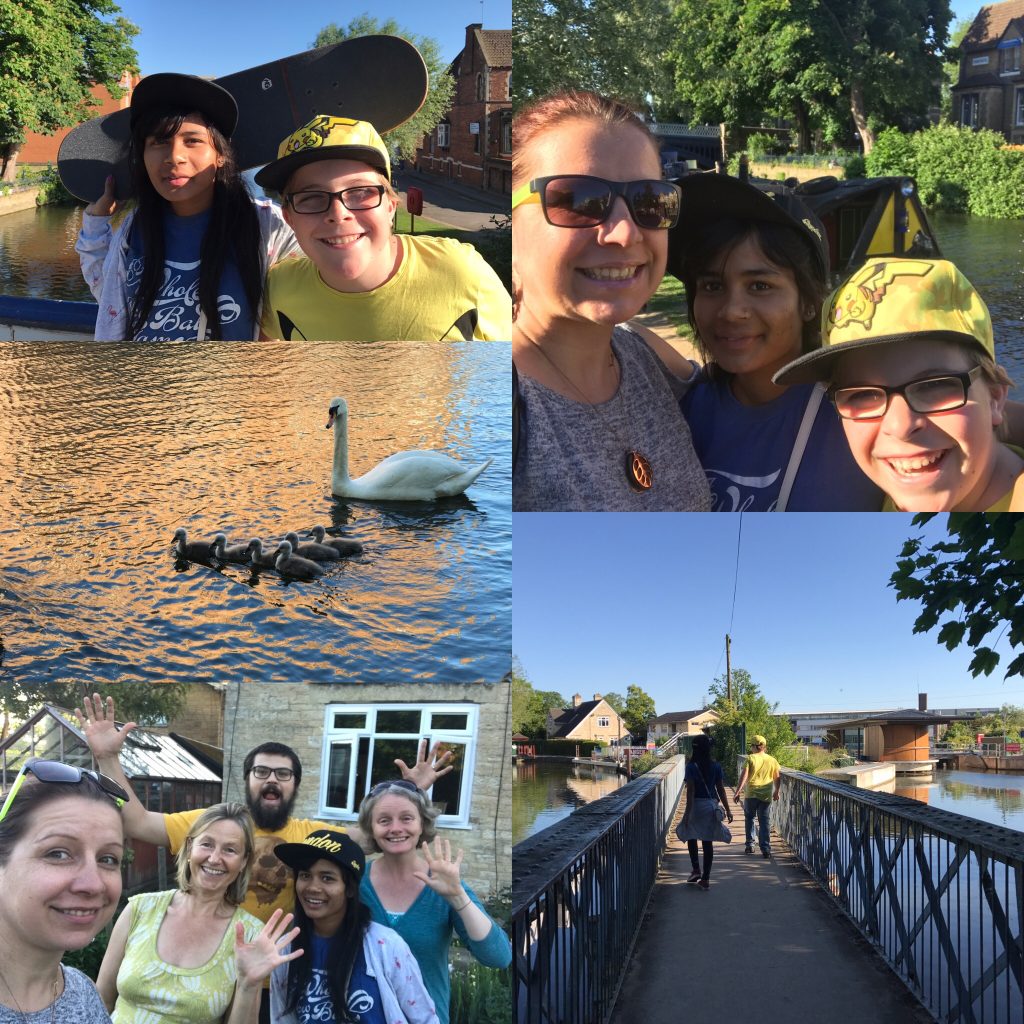
After the visit to the Lock, we moved on to Oxford Wheels Project skate park where Asha could enjoy a bit of practising again. Once again the community proved supportive and the first drop was supported by a fellow skateboarder so Asha could enjoy new hights. It was so lovely to hear him say to his friend: “She is much better than I was when I was her age!”

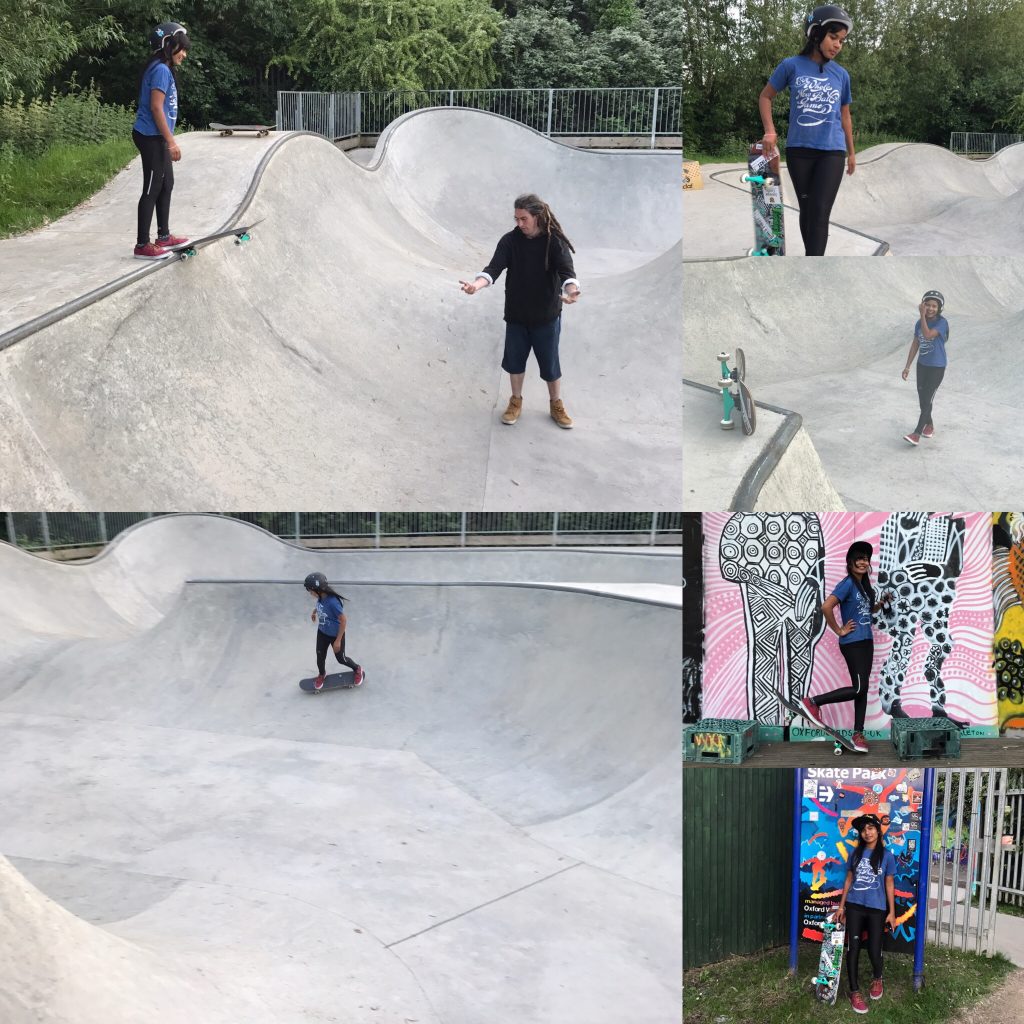
Ont the way back we stopped for a photo shoot with this gorgeous cat – Asha loves animals!

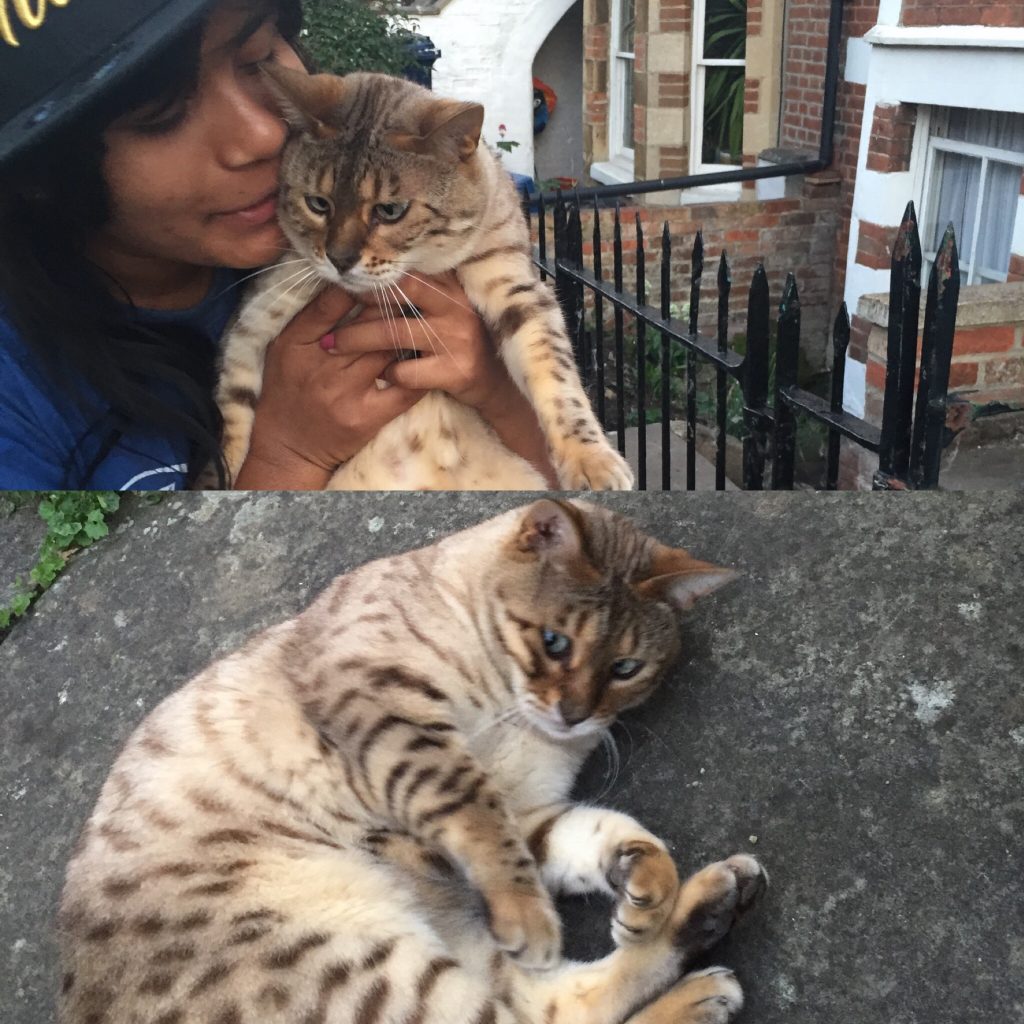
On Saturday morning we have arrived at Saltdean and met up with friends from Brighton. First, we found a lovely Italian cafe and enjoyed a great selection of sweets for breakfast;) Then Margot, an established food blogger, appeared with her family. She was so amazing: she prepared a zebra cake the very same morning so we got to enjoy a fresh, still warm cake on the beach on a rather cold and windy day.

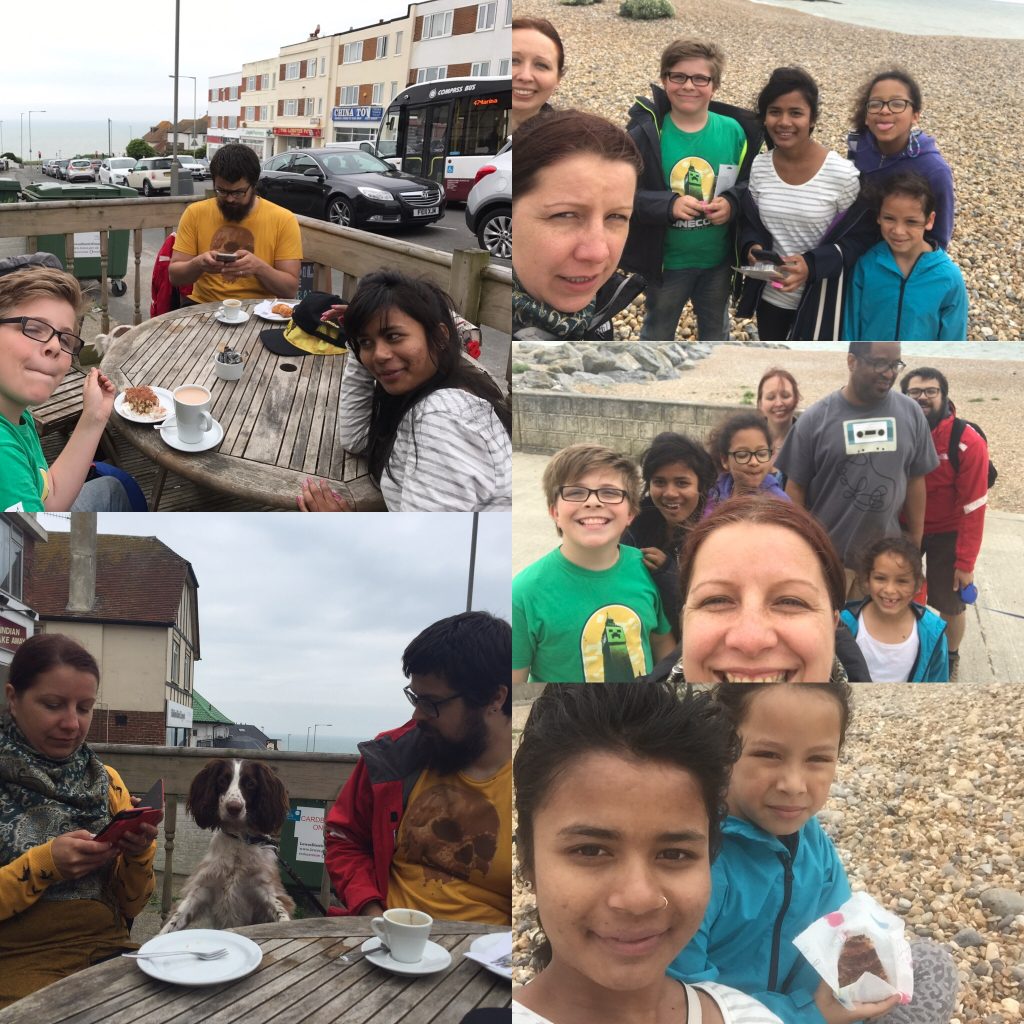
I hope to find out one day how it felt for Asha to stand at the Ocean for the first time but I did see that she was stunned, amazed and happy at the same time. As everything else so far, she was taking this new experience in fully.

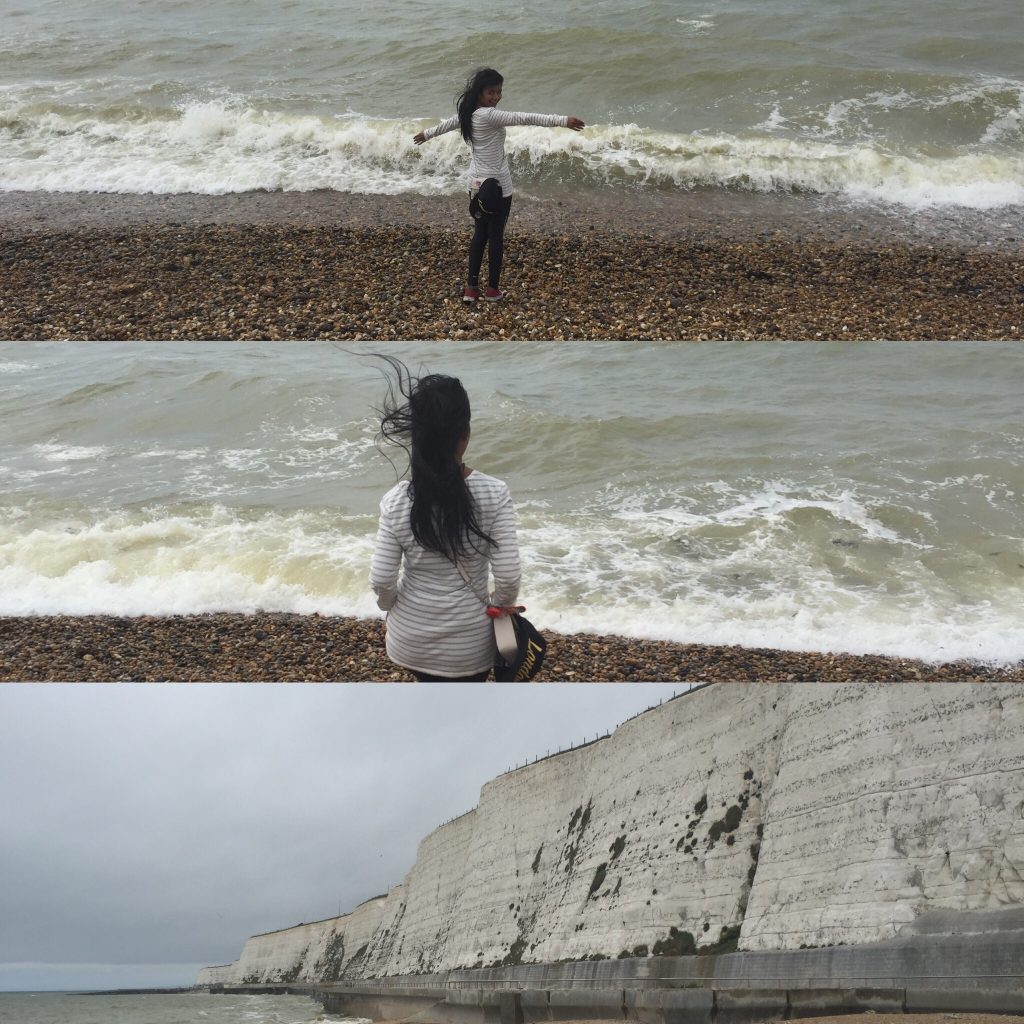
Then we wnet back to Brighton, to our friends’ house, rested, kids played and we also managed to do a walk int he area.

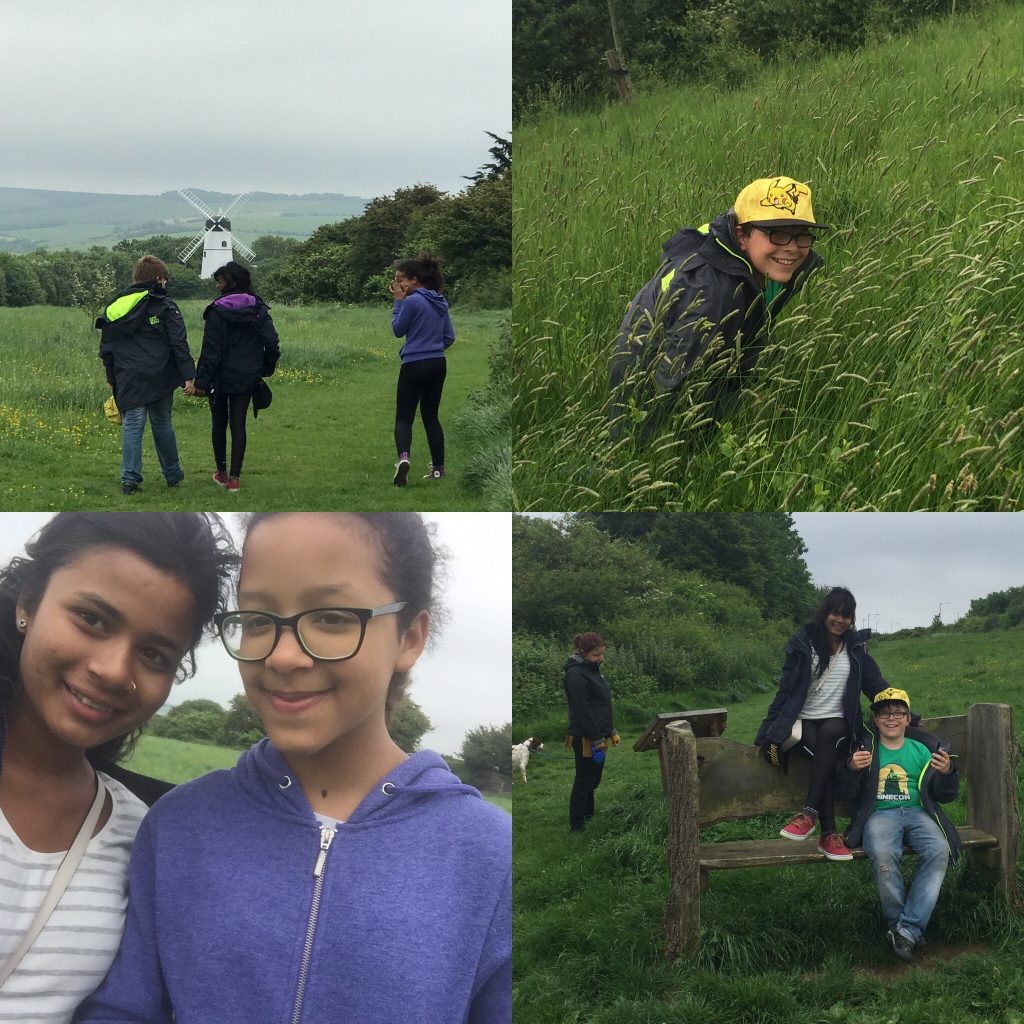
On the way back in the afternoon, early evening, we stopped at Hove to enjoy the sun which came out and made our last moments at the Ocean rather lovely. Kids had a lot of fun!

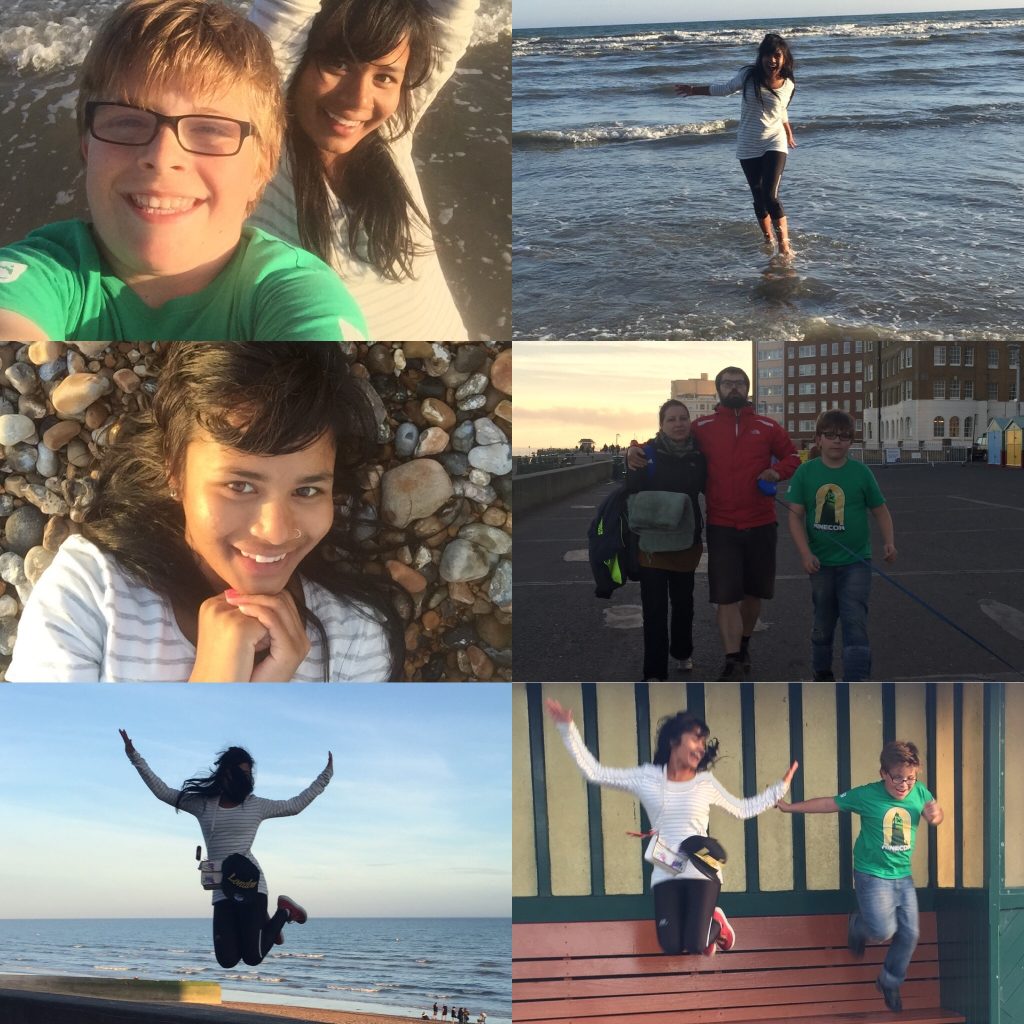
Sunday was sunny with predicted rain for the rest of Asha’s stay so we had to make the most of it. First we visited the Burton-upn-Water with its lovely model village.

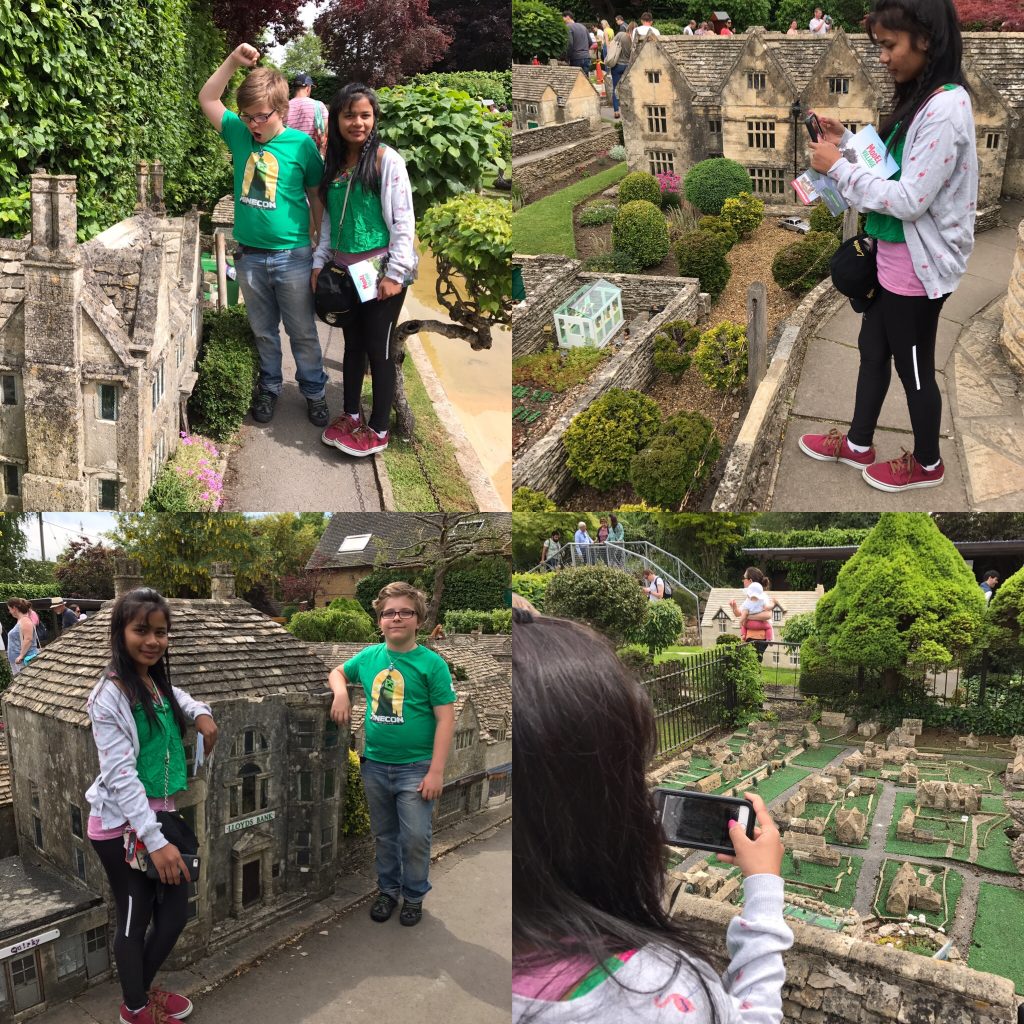
Then we showed Asha that the village does actually look just like in the model version of it – we sat down and had a picnic in the sun with kids dipping their feet in the water.

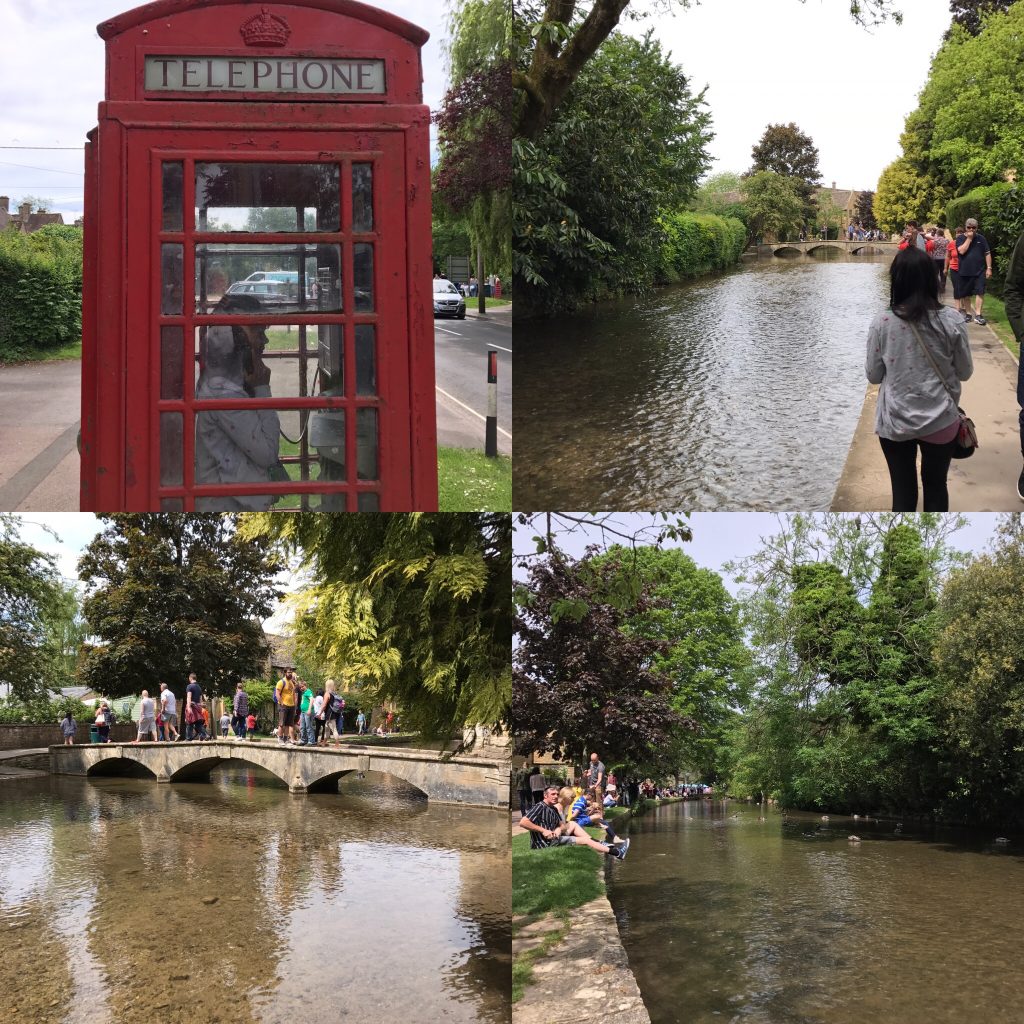
On the way back we stopped at the Millets Farm for a circus performance – which was actually really tiring – the tent proved very hot! We made it though and the ice-cream afterwards rescued the mood;)


After ice-cream, waiting for Dan to come and pick us up – we had a moment to check out the Millets Falconry. We watched a short presentation and checked out birds of prey, ferrets, baby skunks (I have never seen baby skunks muself!) and other cute animals. Asha said hello to the Indian owl and later on met baby owls too.

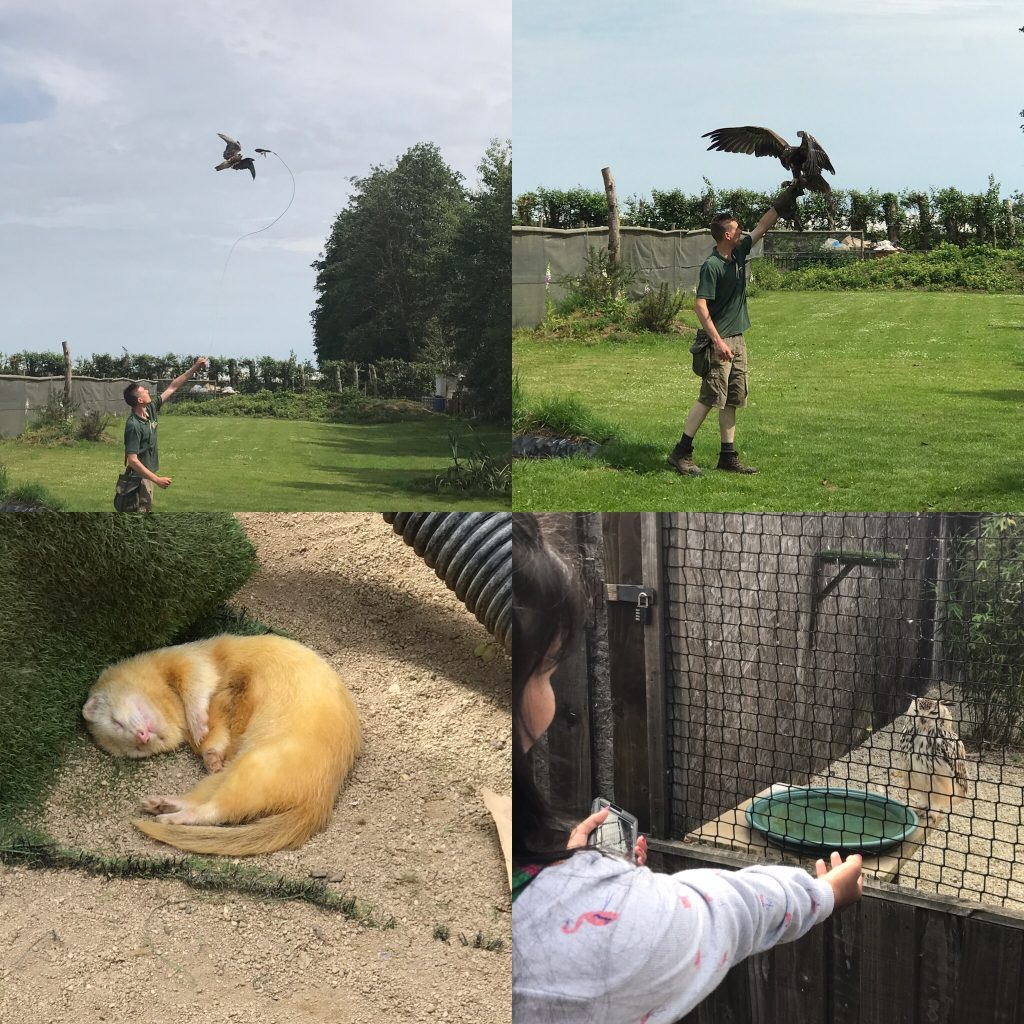
It was an intense week with a lot of studies, work and visiting. Monday was a bank holiday in the UK but for Asha it was the day of her last lesson with Bethany.

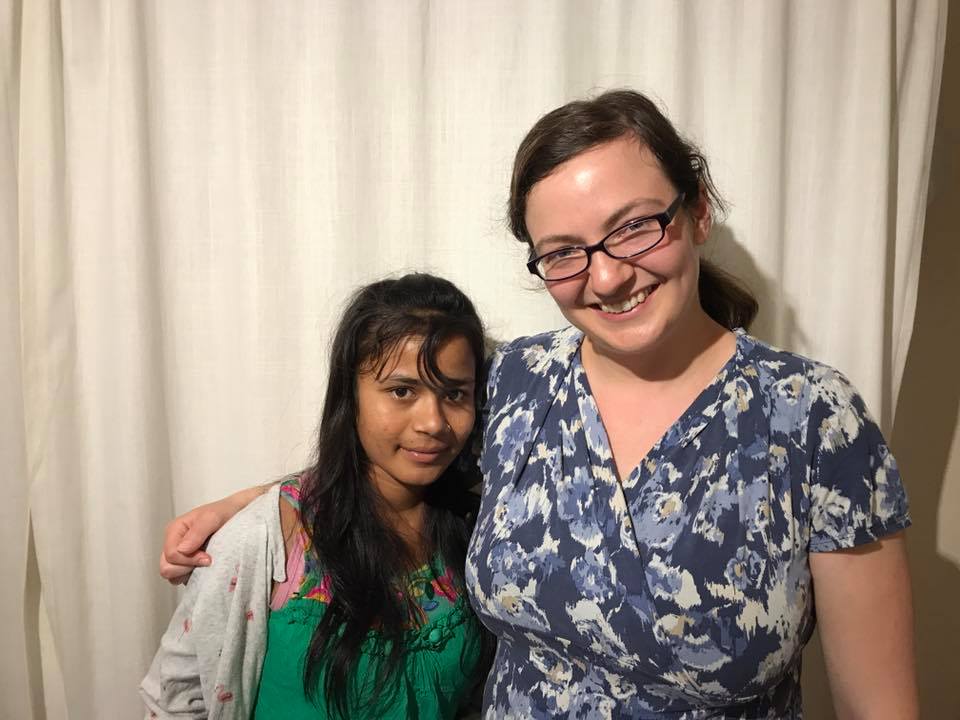
And now we are packed and ready to go to the airport! I cannot believe how time flies! I will need to time to reflect on this time with Asha, but I can say one thing for now: it has been a privilege to have her over!
